NEW SCHEME OF WORK
WEEKS TOPICS
1. Revision of Last Term's Work
2. Values: (a) The meaning of Values. (b) The importance of values. (c) Level of Manifestation of values. (d) Factors that promote good value system.
3. Values: (e) Honesty – meaning of honesty. (b) Co-operation – what is co-operation?
4. Social Issues and Problems: (a) Contemporary social problems in Nigeria e.g. Examination malpractice, cultism, HIV/AIDS, etc.
5. Social Issues and Problems: (b) Causes of contemporary social problems in Nigeria e.g. poverty, corruption, lack of parental care, etc.
6. Social Issues and Problems: (c) Problems associated with contemporary social problems in Nigeria – Individual, Family and Nation.
7. Social Issues and Problems: (d) Solutions or measures of solving contemporary social problems e. g. Government policies, civil society participation, personal discipline, etc.
8. National Unity and Integration: (a) Meaning of National Unity and Integration – e.g. Living together peacefully. (b) Need for National unity and progress and development of national integrity – Defense, Integration.
9. National Unity and Integration: (c) Importance of national unity and integration to nation building. e.g. Economy growth and attraction of foreign investment.
10. Revision
OLD SCHEME OF WORK
WEEK TOPIC
1. Revision of last term’s work.
2. Social Issues and Problems
Examination Malpractice; Meaning and causes
3. Social Issues and Problems;
Effects and Solution
4. Cultism.
Meaning, Causes, Effects and Solution.
5. HIV/AIDS
Meaning, Causes, Effects and Prevention.
6. Problems Associated with Contemporary Social Problems in
Nigeria:
Individual, Family, Nation.
7. Problems Associated with Contemporary Social Problems in
Nigeria:
Individual, Family, Nation.
8. Measures of Solving Contemporary Social Problems.
9. National Unity and Integration:
Meaning, Needs and Importance.
10. Need for National unity and progress and development of national integrity.
Problems of National Unity and Integration.
11. Revision.
3RD TERM
WEEK 1
LESSON 1
TOPIC: OUR VALUES
Content: i. The Meaning and Importance of Values
ii. Level of Manifestation of Values
iii. Factors that promote good Value system
The Meaning and Importance of Values
The Meaning of Values:
Values are principles and beliefs that influence, guide and regulate the behavior of people and their way of life in any social group or community. They are what an individual, a family, social group or community accepts as sets of moral rules or ways of life that guides their conduct while interacting and relating with one another and with others in the larger society. Values held in a given society may differ from what is held in another society. Values therefore, are qualities that identify a group of people or community. Values identify what is good from what is bad. Values serve as criteria that influence and determine how individuals behave in society. They include likes and dislikes in any society.

Some examples of values include honesty, discipline, integrity, hard work, commitment, etc.
Most people prefer to work with people that exhibit good values. When one exhibits good values in the school, at home and at the place of work, it will make many people to love him or her.
Importance of Values:
Values guide the Conduct of individuals or groups. They dictate people’s belief system and are reflected in their way of life. Values are important to the society because they show who the people are and what they believe and practice. They are significant marks of identity of the people.
Values determine what is acceptable in a given society and what is held as a taboo. A taboo is what is forbidden among people. People who do such forbidden things are punished or are deprived of certain rights in the society.
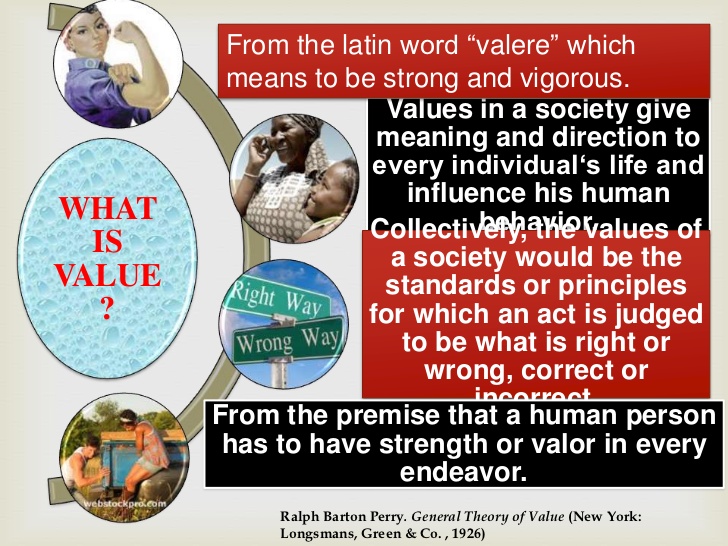
The importance of values can be summarized as follows:
(a) Values promote unity, cooperation and harmony among people.
(b) Values help in good decision making as they tend to help us take rational decision based on the importance attached to a thing.
(c) Basic human values also promote positive or good relationship among people when they all accept such societal norms, attitude or ways of doing things.
(d) Understanding our value system helps us to resist pressure to conform to other people’s value and behaviour which may not be acceptable to the generality of our people.
(e) If we do not act in accordance with our values, we may be ashamed, disgraced and disappointed
(f) Values guide human behavior, as they give purpose and direction to our lives in line with acceptable ways of behaviours recognized in the society.
(g) Values also enhance good behavior, attitudes and feelings in the society.
(h) Values promote good relationship, help to build personal integrity and enhance good behaviours that are acceptable in the society.

Evaluation:
1. Explain the meaning of values.
2. Mention three importance of values to the society.
3. What is a taboo?
LESSON 2
Level of Manifestation of Values:
Values are manifested in two different ways; (i) the individual and (ii) the society.
Individual values - An individual may manifest personal values through his likes and dislikes. The individual develops his values in various ways, which may be through parental influence, community, cultural and religious teaching, the mass media, school and peer groups.
In most cases, parents want their children to develop values similar to their own, though members of the same family may have different values. Open and honest communication about specific values can help young people to broaden their outlook and understand importance of values. The individual as a member of the society is expected to conform to acceptable behavioural values and patterns because no one is an island. However, one may want to accept only those aspects of societal values that one finds to be suitable to one’s beliefs.
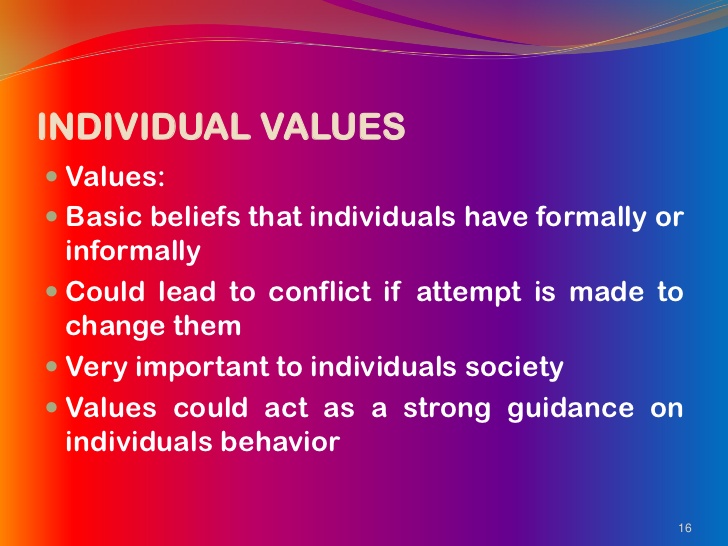
Societal Values - There are certain values, norms and attitudes of a society which are developed over a long period of time. As we mature in the society, through the process of socialization, we are made to learn and acquire such values which are cherished by the society. Such values can be learnt mostly through the rules and regulations, the do’s and don’ts of society. In any given society, social norms and cultural values determine and regulate the social interaction and the ways of life of the people. They regulate and guide the people to make them have a common identity as a group of people or community. Every human being belongs to a group with its sets of values that makes it distinct from other groups.

Evaluation:
1. Give the two levels by which values are manifested.
2. Mention two rules and regulations upheld in the school.
LESSON 3
Factors that Promote Good Value System:
Human actions are guided by values which represent their beliefs and principles. The following factors help to promote good value system:
1. CONSISTENCY – Good value system should be continuous and permanent. One must remain stable and resolute at all times and not given to changes as a chameleon. This is the attitude of doing what is right all the time and this has the tendency of promoting good moral values in the society
2. TRUST – Trust entails reliability. To hold a good value system, one must be honest, fair and reliable. People will have confidence in a trustworthy individual to do what is right at any given time. This will promote societal and individual value system.
3. TOLERANCE – The ability to tolerate other people’s beliefs even when they are different from our own. In the larger society, like Nigeria, people of different religious beliefs co-exist side by side. We are to tolerate others and be at peace with them even if they do not share the same opinion with us. We must learn to respect people’s beliefs and not criticize or antagonize them unduly.
4. FAIRNESS – Apart from the fact that one’s actions must be reasonable and morally right. we should learn to treat other people in the society fairly so that our values will not be destroyed.
5. INTEGRITY – This is the attitude of having the sense of probity and accountability. This involves having a sense of honesty and truth. When this attitude is present in our society, our value system will be promoted and sustained
6. COMMITMENT – This is the attitude of facing a given task with all seriousness and high sense of responsibility. Do not leave until tomorrow, what can be done today. When such attitude is present in our society, our value system will be promoted, enhanced and sustained.
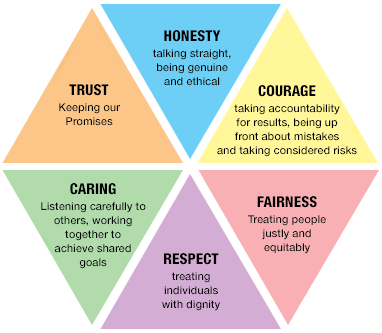
Evaluation:
1. Name four factors that can promote good value system.
2. What is religious tolerance?
Reading Assignment:
Read about honesty, dishonesty and cooperation
Assignment:
Objective Test:
(1) An example of value is
(a) Respect for elders (b) stealing (c) playing while learning (d) being a bully
(2) Values are; (a) our treasures (b) our properties (c) our money (d) our principles and beliefs
(3) One of the following is not a good value system:
(a) Love of riches and material things (b) Caring for the needy (c) having the fear of God (d) respect for teachers and elders
(4) Which of the following is not an importance of values?
(a) Unity (b) harmony (c) negligence (d) cooperation
(5) All but one of the following are important factors that promote good value system, which;
(a) Intolerance (b) Tolerance (c) Integrity (d) Trust
Essay Test:
1. Define Values.
2. Explain what is meant by consistency
3. Name and discuss two factors that promote good value system
TOPIC: OUR VALUES
Content: i. The Meaning and Importance of Values
ii. Level of Manifestation of Values
iii. Factors that promote good Value system
The Meaning and Importance of Values
The Meaning of Values:
Values are principles and beliefs that influence, guide and regulate the behavior of people and their way of life in any social group or community. They are what an individual, a family, social group or community accepts as sets of moral rules or ways of life that guides their conduct while interacting and relating with one another and with others in the larger society. Values held in a given society may differ from what is held in another society. Values therefore, are qualities that identify a group of people or community. Values identify what is good from what is bad. Values serve as criteria that influence and determine how individuals behave in society. They include likes and dislikes in any society.

Some examples of values include honesty, discipline, integrity, hard work, commitment, etc.
Most people prefer to work with people that exhibit good values. When one exhibits good values in the school, at home and at the place of work, it will make many people to love him or her.
Importance of Values:
Values guide the Conduct of individuals or groups. They dictate people’s belief system and are reflected in their way of life. Values are important to the society because they show who the people are and what they believe and practice. They are significant marks of identity of the people.
Values determine what is acceptable in a given society and what is held as a taboo. A taboo is what is forbidden among people. People who do such forbidden things are punished or are deprived of certain rights in the society.

The importance of values can be summarized as follows:
(a) Values promote unity, cooperation and harmony among people.
(b) Values help in good decision making as they tend to help us take rational decision based on the importance attached to a thing.
(c) Basic human values also promote positive or good relationship among people when they all accept such societal norms, attitude or ways of doing things.
(d) Understanding our value system helps us to resist pressure to conform to other people’s value and behaviour which may not be acceptable to the generality of our people.
(e) If we do not act in accordance with our values, we may be ashamed, disgraced and disappointed
(f) Values guide human behavior, as they give purpose and direction to our lives in line with acceptable ways of behaviours recognized in the society.
(g) Values also enhance good behavior, attitudes and feelings in the society.
(h) Values promote good relationship, help to build personal integrity and enhance good behaviours that are acceptable in the society.

Evaluation:
1. Explain the meaning of values.
2. Mention three importance of values to the society.
3. What is a taboo?
LESSON 2
Level of Manifestation of Values:
Values are manifested in two different ways; (i) the individual and (ii) the society.
Individual values - An individual may manifest personal values through his likes and dislikes. The individual develops his values in various ways, which may be through parental influence, community, cultural and religious teaching, the mass media, school and peer groups.
In most cases, parents want their children to develop values similar to their own, though members of the same family may have different values. Open and honest communication about specific values can help young people to broaden their outlook and understand importance of values. The individual as a member of the society is expected to conform to acceptable behavioural values and patterns because no one is an island. However, one may want to accept only those aspects of societal values that one finds to be suitable to one’s beliefs.

Societal Values - There are certain values, norms and attitudes of a society which are developed over a long period of time. As we mature in the society, through the process of socialization, we are made to learn and acquire such values which are cherished by the society. Such values can be learnt mostly through the rules and regulations, the do’s and don’ts of society. In any given society, social norms and cultural values determine and regulate the social interaction and the ways of life of the people. They regulate and guide the people to make them have a common identity as a group of people or community. Every human being belongs to a group with its sets of values that makes it distinct from other groups.

Evaluation:
1. Give the two levels by which values are manifested.
2. Mention two rules and regulations upheld in the school.
LESSON 3
Factors that Promote Good Value System:
Human actions are guided by values which represent their beliefs and principles. The following factors help to promote good value system:
1. CONSISTENCY – Good value system should be continuous and permanent. One must remain stable and resolute at all times and not given to changes as a chameleon. This is the attitude of doing what is right all the time and this has the tendency of promoting good moral values in the society
2. TRUST – Trust entails reliability. To hold a good value system, one must be honest, fair and reliable. People will have confidence in a trustworthy individual to do what is right at any given time. This will promote societal and individual value system.
3. TOLERANCE – The ability to tolerate other people’s beliefs even when they are different from our own. In the larger society, like Nigeria, people of different religious beliefs co-exist side by side. We are to tolerate others and be at peace with them even if they do not share the same opinion with us. We must learn to respect people’s beliefs and not criticize or antagonize them unduly.
4. FAIRNESS – Apart from the fact that one’s actions must be reasonable and morally right. we should learn to treat other people in the society fairly so that our values will not be destroyed.
5. INTEGRITY – This is the attitude of having the sense of probity and accountability. This involves having a sense of honesty and truth. When this attitude is present in our society, our value system will be promoted and sustained
6. COMMITMENT – This is the attitude of facing a given task with all seriousness and high sense of responsibility. Do not leave until tomorrow, what can be done today. When such attitude is present in our society, our value system will be promoted, enhanced and sustained.

Evaluation:
1. Name four factors that can promote good value system.
2. What is religious tolerance?
Reading Assignment:
Read about honesty, dishonesty and cooperation
Assignment:
Objective Test:
(1) An example of value is
(a) Respect for elders (b) stealing (c) playing while learning (d) being a bully
(2) Values are; (a) our treasures (b) our properties (c) our money (d) our principles and beliefs
(3) One of the following is not a good value system:
(a) Love of riches and material things (b) Caring for the needy (c) having the fear of God (d) respect for teachers and elders
(4) Which of the following is not an importance of values?
(a) Unity (b) harmony (c) negligence (d) cooperation
(5) All but one of the following are important factors that promote good value system, which;
(a) Intolerance (b) Tolerance (c) Integrity (d) Trust
Essay Test:
1. Define Values.
2. Explain what is meant by consistency
3. Name and discuss two factors that promote good value system
WEEK 2
LESSON 4
TOPIC: OUR VALUES
Content: i. Honesty
ii. Cooperation
iii. Factors that promote Cooperation
Honesty
Meaning of Honesty:
Honesty is a type of value. It refers to the human quality saying the truth and acting truthfully in fairness and sincerity. Honesty does not involve cheating, deceit or telling lies, stealing or dealing in craftiness. It is a disposition of always communicating the truth with all sincerity, openness, equity, fairness in every situation whether in verbal and non-verbal communication. An honest person can always be trusted. It is an important behavioural type of value which is considered to be straightforward, truthful and morally upright. Honesty as a value, depicts high human quality that sustains human relationship based on trust. It is a winsome human character.

Attributes of Honesty:
Attributes or qualities of honesty include the following:
1. Sincerity: An honest person is always sincere in his dealings. It means openness by an individual who avoids deceit, falsehood, cheating, stealing and craftiness in all matters.
2. Trust-worthiness: This is the quality found in a person who is always transparent in all his dealings. People repose confidence in him or her. This individual has what is referred to as transparent honesty.
3. Truthfulness: An honest person does not beguile anyone. He says the truth in all matters and in all situations whether convenient or inconvenient.
4. Responsibility: This is an individual who has a high sense of responsibility in carrying out any assignment or duty committed into his hand, either in the family, organization, social group or country. This kind of person is answerable for any of his actions.
5. Good Character: An honest person will always show good character. He/she is a man or woman of amiable character with a winsome disposition.
6. Integrity: An honest person always do the right thing. He does not do things that bring shame. He always protect his good name and does not compromise his standard for anything. He maintains his integrity in all circumstances.
7. Fairness: An honest person will not be partial. He is always fair to everybody. He deals in fairness.

Benefits of Honesty:
The benefits of honesty include the following:
1. Honesty helps to form bonds in human relationship. It builds relationship based on trust.
2. Honesty helps to build a just and egalitarian society; where stealing, cheating, lying and all forms of corruption are frowned at and condemned without fear or favour.
3. Honesty in the society or nation guarantees rapid development because honesty or righteousness exalts a nation.
4. Honesty prevents fraudulent practices such as inflating costs of contract, public funds embezzlement, money laundering, falsification of records and figures in order to steal or mis-appropriate public funds.
5. Honesty makes students to study well to pass examinations with flying colours and prevent them from engaging in examinations malpractice.
6. Honesty enable things to work out well and fast. It helps to identify and solve problems in a straightforward way to avoid wastefulness.
7. Honesty makes a man or a woman to be an honourable person in the society.
8. Honest attracts good people to a person. It makes people to want to do business with an individual and relate well with him.
9. Honesty attracts respect and accord dignity to an individual.
10. Honesty leads to promotion and awards. E.g. Schools, organizations, etc. do reward students and employees respectively due to honesty.
11. Honesty bestows peace and harmony to the society and country.

Dishonesty:
Dishonesty is the opposite of honesty. It is a kind of behavior that is evil because it deals in craftiness, deceit, cheating, lying and all forms of despicable practices. Dishonesty is immoral and has negative and unfavourable effects or consequences on an individual, group or society.

Negative Effects or Consequences of Dishonesty:
1. Dishonest leads to examinations malpractice and mass failure of students in an examination when detected.
2. It leads to poor quality of students produced from the educational system.
3. Dishonesty creates an unjust society where cheating, lying, crime etc prevail.
4. Dishonesty breeds fraudulent practices such as bribery, forgery, embezzlement of public funds, money laundering and all sorts of evil practices in the society.
5. Dishonesty brings bad image to a person and ruins the good reputation of a nation at large.
6. Dishonesty leads to the production of inferior goods, fake drugs etc.
7. The consequences of dishonesty when detected is prosecution by law enforcement agents and imprisonment.
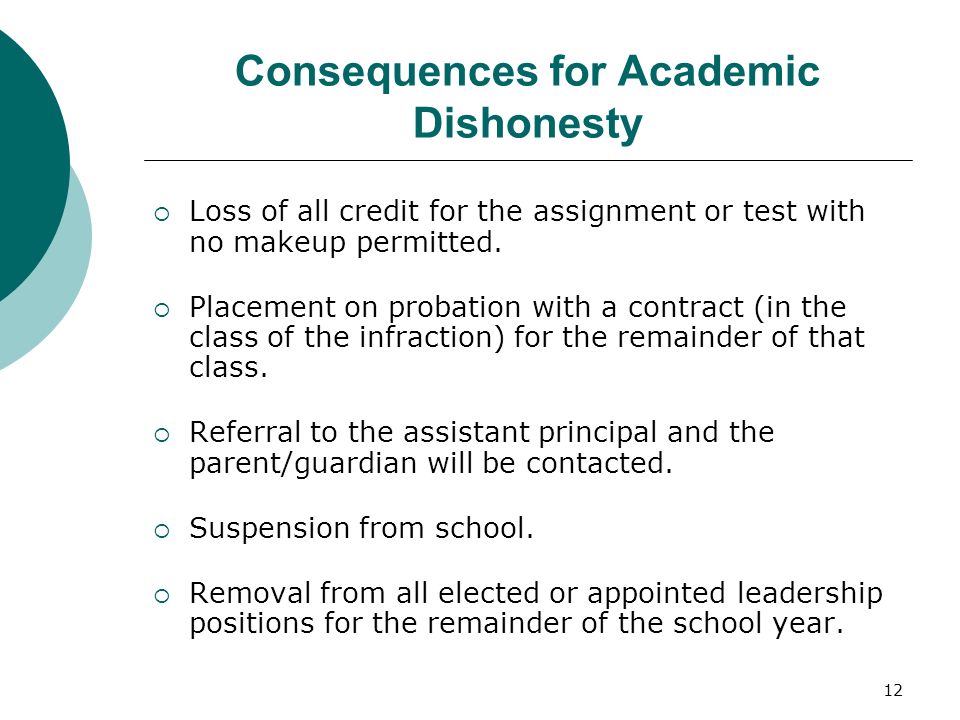
Evaluation:
1. What is honesty?
2. Mention three attributes of honesty.
3. Describe three consequences of dishonesty.
LESSON 5
Cooperation
Meaning of Cooperation
Cooperation is a type of value. It means a situation whereby people work together to achieve a common goal that will benefit all of them.
Man as a gregarious being does not live alone. He lives with other people in society hence it is said that no man is an island. Nobody can live successfully and comfortably without depending on other people in the family and in the community. In eking out a living, man interacts with other people to transact business, associate with people to project common interests, participate in family matters and socially integrate into the society. Living together successfully with other people demands cooperation for peaceful co-existence and for the general development of society.
In the family, every member has his specific role to play at home. The Father, the Mother and each child play specific roles in a cooperative manner to keep the family together as a stable social unit. The father provides the basic needs of the family. The wife supports and assists the husband by taking care of the children and home. The children perform their roles by assisting their parents and helping one another as siblings. Cooperation of every member of the family enables the family to grow and make progress.
As in the family, so it is in the larger society. Everybody in the community is expected to cooperate with one another by participating and contributing to community development projects. People are also expected to cooperate with the government by obeying the laws of the land and obeying rules and regulations. They are expected to pay taxes and perform social and civic obligations. The government in turn, cooperates with the citizenry by providing necessary social amenities, protecting lives and properties, civil liberties and their rights.

Attributes of Cooperation:
1. Sharing – Cooperation demands that those who have should share with the less privileged and the needy. This mutual show of kindness and neighbourliness promotes unity, love and cooperation in society. All fingers are not equal. In the school, students who have more should share with those who do not have enough. Students who understand a topic clearer than others in the class should help by explaining to their colleague.
2. Caring – Where there is cooperation, people care for the welfare of one another. They show love and affection by helping the needy
3. Supporting – Cooperation brings about mutual support. We come to the aid of others in time of need and support them. For instance, when there is fire disaster in a particular house, neighbours help to rescue victim and their properties. So also, in time of flooding or any other kind of hazards.
4. Obedience to the Rules and Regulations of a Society – This is an attribute of cooperation. High level development is attained in a community where citizens cooperate to allow peace to reign supreme in the land.

Evaluation:
1. Explain the meaning of cooperation
2. Name two attributes of cooperation
LESSON 6
Factors that promote Cooperation:
The following factors help to promote cooperation:
1. Goals – Goals are things that people hope or aim to achieve. When the members of a given community or nation aspire to achieve some set goals, this brings about cooperation. To achieve the set goals, they plan and work together in cooperation to achieve the goal.
2. Needs – In a situation whereby the needs of people are attended to, people tend to show cooperation by contributing to the development of the society. For example, when Government provides stable electricity power supply, people reciprocate by paying light bills promptly. When a government is noted for providing social amenities such as pipe-borne water, schools, electricity etc. the people tend to cooperate with the government by paying taxes and other levies.
3. Understanding - When there is mutual understanding and respect for others’ feelings this tend to make people have a sense of belonging which in turn make people to love care and support each other. This helps to win the cooperation of all.
4. Historical Backgrounds: - People who share a common trait, ancestry, history tend to always cooperate together to achieve set goals. History made Nigeria to exist as a country; every citizen must do everything possible to cooperate together as country for the progress and development of the nation.
5. Trust – When we feel that people are reliable and honest, we can put our confidence in them to work together for the achievement of our common goals as a people.
6. Tolerance – Tolerance encourages cooperation. In a country like Nigeria where there are over 250 ethnic groups, different religious leanings, tolerance of each other’s beliefs will encourage cooperation.
7. Humility – This is a behaviour that shows that one is not special, superior or more important than others. People who humble themselves before others will always gain their confidence and cooperation to achieve set goals.
8. Existence of Rules and Regulations – Where there is no law, there is no sin. To achieve cooperation in a workplace, school, family, the society, religious institutions etc, should have rules and regulations that will guide the behavior and conduct of the people, to avoid friction, quarrel and mis-understanding.
9. Equity – To encourage cooperation in society, tribalism, nepotism, sectionalism, etc. must be avoided. Acts of nepotism, tribalism and sectionalism give undue advantage to undeserving people at the expense of others who may be better qualified such a situation creates disaffection and uncooperative attitude.
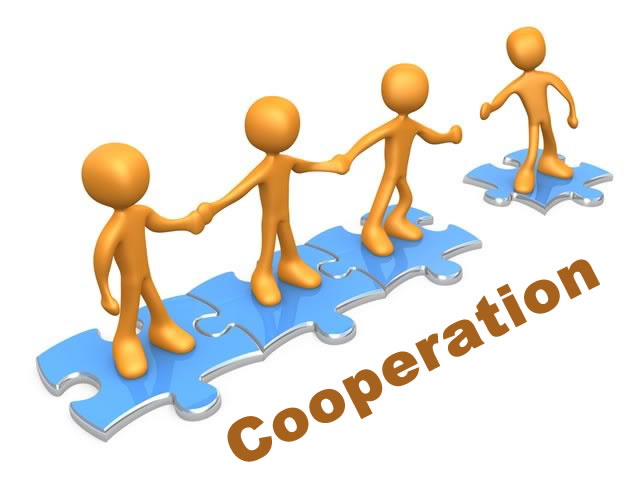
Benefits of Cooperation:
1. Cooperation brings about peace and harmony, when peoples’ rights are not trampled by the powerful. Progress will be sustained, when fundamental human rights are protected.
2. Cooperation gives room for development. The economy will grow with leaps and bounds as foreign investors are encouraged to come into the State or Country.
3. Cooperation brings about the realization of set objectives, goals and aspiration of the people. Cooperation enables set goal which individuals acting alone cannot achieve to be achieved with ease.
4. Cooperation always encourages peace, harmony, joy and happiness in any society that allows it to operate.
5. Cooperation gives room for unity. And unity brings strength that is needed for the development of the society.

Another type of value is Self-Reliance which means self-sufficiency. It is an ability to do things or take decisions by oneself without depending on the help or advice of other people. Self-reliance manifests in a situation whereby one has the ability and courage to listen to one and act by oneself instead of allowing other people, circumstances, or things to dictate to one. It is a situation where require no external aid, input, help or support etc.
One important but often neglected value is Dignity of labour which means the decision to do any kind of work that is available to earn a living instead of being dependent on parents or being a parasite on fiends or other people, depending on charity in order to survive when the ideal and befitting kind of work is not yet available. The idle brain or hand is the devils workshop or tool.

Evaluation:
1. Explain cooperation as a value
2. Give three attributes of cooperation.
3. List two factors that promote cooperation.
Reading Assignment:
Students should read from their textbook about Contemporary Social Issues and problems in Nigeria.
Assignment:
Objective Test:
1. The human quality of communicating and acting truthfully in fairness and sincerity is known as: (a) value (b) dishonesty (c) honesty (d) security
2. One of the following is not an attribute of honesty;
(a) Trustworthiness (b) fairness (c) destroying a nation (d) sincerity
3. Responsibility means;
(a) Cheating (b) responding well to duty (c) fighting (d) knowing one’s right
4. Factors that promote cooperation are
(a) goals, needs, envy and patience (b) understanding, goals, needs and jealousy
(c) Goals, understanding, needs and tolerance (d) jealousy, envy, goals and needs
5. One of these is not a consequence of lack of cooperation;
(a) Conflict (b) hatred (c) progress (d) underdevelopment.
Essay Test:
1. Enumerate two benefits of honesty.
2. Explain dishonesty
3. List and explain three benefits of cooperation.
TOPIC: OUR VALUES
Content: i. Honesty
ii. Cooperation
iii. Factors that promote Cooperation
Honesty
Meaning of Honesty:
Honesty is a type of value. It refers to the human quality saying the truth and acting truthfully in fairness and sincerity. Honesty does not involve cheating, deceit or telling lies, stealing or dealing in craftiness. It is a disposition of always communicating the truth with all sincerity, openness, equity, fairness in every situation whether in verbal and non-verbal communication. An honest person can always be trusted. It is an important behavioural type of value which is considered to be straightforward, truthful and morally upright. Honesty as a value, depicts high human quality that sustains human relationship based on trust. It is a winsome human character.

Attributes of Honesty:
Attributes or qualities of honesty include the following:
1. Sincerity: An honest person is always sincere in his dealings. It means openness by an individual who avoids deceit, falsehood, cheating, stealing and craftiness in all matters.
2. Trust-worthiness: This is the quality found in a person who is always transparent in all his dealings. People repose confidence in him or her. This individual has what is referred to as transparent honesty.
3. Truthfulness: An honest person does not beguile anyone. He says the truth in all matters and in all situations whether convenient or inconvenient.
4. Responsibility: This is an individual who has a high sense of responsibility in carrying out any assignment or duty committed into his hand, either in the family, organization, social group or country. This kind of person is answerable for any of his actions.
5. Good Character: An honest person will always show good character. He/she is a man or woman of amiable character with a winsome disposition.
6. Integrity: An honest person always do the right thing. He does not do things that bring shame. He always protect his good name and does not compromise his standard for anything. He maintains his integrity in all circumstances.
7. Fairness: An honest person will not be partial. He is always fair to everybody. He deals in fairness.

Benefits of Honesty:
The benefits of honesty include the following:
1. Honesty helps to form bonds in human relationship. It builds relationship based on trust.
2. Honesty helps to build a just and egalitarian society; where stealing, cheating, lying and all forms of corruption are frowned at and condemned without fear or favour.
3. Honesty in the society or nation guarantees rapid development because honesty or righteousness exalts a nation.
4. Honesty prevents fraudulent practices such as inflating costs of contract, public funds embezzlement, money laundering, falsification of records and figures in order to steal or mis-appropriate public funds.
5. Honesty makes students to study well to pass examinations with flying colours and prevent them from engaging in examinations malpractice.
6. Honesty enable things to work out well and fast. It helps to identify and solve problems in a straightforward way to avoid wastefulness.
7. Honesty makes a man or a woman to be an honourable person in the society.
8. Honest attracts good people to a person. It makes people to want to do business with an individual and relate well with him.
9. Honesty attracts respect and accord dignity to an individual.
10. Honesty leads to promotion and awards. E.g. Schools, organizations, etc. do reward students and employees respectively due to honesty.
11. Honesty bestows peace and harmony to the society and country.

Dishonesty:
Dishonesty is the opposite of honesty. It is a kind of behavior that is evil because it deals in craftiness, deceit, cheating, lying and all forms of despicable practices. Dishonesty is immoral and has negative and unfavourable effects or consequences on an individual, group or society.

Negative Effects or Consequences of Dishonesty:
1. Dishonest leads to examinations malpractice and mass failure of students in an examination when detected.
2. It leads to poor quality of students produced from the educational system.
3. Dishonesty creates an unjust society where cheating, lying, crime etc prevail.
4. Dishonesty breeds fraudulent practices such as bribery, forgery, embezzlement of public funds, money laundering and all sorts of evil practices in the society.
5. Dishonesty brings bad image to a person and ruins the good reputation of a nation at large.
6. Dishonesty leads to the production of inferior goods, fake drugs etc.
7. The consequences of dishonesty when detected is prosecution by law enforcement agents and imprisonment.

Evaluation:
1. What is honesty?
2. Mention three attributes of honesty.
3. Describe three consequences of dishonesty.
LESSON 5
Cooperation
Meaning of Cooperation
Cooperation is a type of value. It means a situation whereby people work together to achieve a common goal that will benefit all of them.
Man as a gregarious being does not live alone. He lives with other people in society hence it is said that no man is an island. Nobody can live successfully and comfortably without depending on other people in the family and in the community. In eking out a living, man interacts with other people to transact business, associate with people to project common interests, participate in family matters and socially integrate into the society. Living together successfully with other people demands cooperation for peaceful co-existence and for the general development of society.
In the family, every member has his specific role to play at home. The Father, the Mother and each child play specific roles in a cooperative manner to keep the family together as a stable social unit. The father provides the basic needs of the family. The wife supports and assists the husband by taking care of the children and home. The children perform their roles by assisting their parents and helping one another as siblings. Cooperation of every member of the family enables the family to grow and make progress.
As in the family, so it is in the larger society. Everybody in the community is expected to cooperate with one another by participating and contributing to community development projects. People are also expected to cooperate with the government by obeying the laws of the land and obeying rules and regulations. They are expected to pay taxes and perform social and civic obligations. The government in turn, cooperates with the citizenry by providing necessary social amenities, protecting lives and properties, civil liberties and their rights.

Attributes of Cooperation:
1. Sharing – Cooperation demands that those who have should share with the less privileged and the needy. This mutual show of kindness and neighbourliness promotes unity, love and cooperation in society. All fingers are not equal. In the school, students who have more should share with those who do not have enough. Students who understand a topic clearer than others in the class should help by explaining to their colleague.
2. Caring – Where there is cooperation, people care for the welfare of one another. They show love and affection by helping the needy
3. Supporting – Cooperation brings about mutual support. We come to the aid of others in time of need and support them. For instance, when there is fire disaster in a particular house, neighbours help to rescue victim and their properties. So also, in time of flooding or any other kind of hazards.
4. Obedience to the Rules and Regulations of a Society – This is an attribute of cooperation. High level development is attained in a community where citizens cooperate to allow peace to reign supreme in the land.

Evaluation:
1. Explain the meaning of cooperation
2. Name two attributes of cooperation
LESSON 6
Factors that promote Cooperation:
The following factors help to promote cooperation:
1. Goals – Goals are things that people hope or aim to achieve. When the members of a given community or nation aspire to achieve some set goals, this brings about cooperation. To achieve the set goals, they plan and work together in cooperation to achieve the goal.
2. Needs – In a situation whereby the needs of people are attended to, people tend to show cooperation by contributing to the development of the society. For example, when Government provides stable electricity power supply, people reciprocate by paying light bills promptly. When a government is noted for providing social amenities such as pipe-borne water, schools, electricity etc. the people tend to cooperate with the government by paying taxes and other levies.
3. Understanding - When there is mutual understanding and respect for others’ feelings this tend to make people have a sense of belonging which in turn make people to love care and support each other. This helps to win the cooperation of all.
4. Historical Backgrounds: - People who share a common trait, ancestry, history tend to always cooperate together to achieve set goals. History made Nigeria to exist as a country; every citizen must do everything possible to cooperate together as country for the progress and development of the nation.
5. Trust – When we feel that people are reliable and honest, we can put our confidence in them to work together for the achievement of our common goals as a people.
6. Tolerance – Tolerance encourages cooperation. In a country like Nigeria where there are over 250 ethnic groups, different religious leanings, tolerance of each other’s beliefs will encourage cooperation.
7. Humility – This is a behaviour that shows that one is not special, superior or more important than others. People who humble themselves before others will always gain their confidence and cooperation to achieve set goals.
8. Existence of Rules and Regulations – Where there is no law, there is no sin. To achieve cooperation in a workplace, school, family, the society, religious institutions etc, should have rules and regulations that will guide the behavior and conduct of the people, to avoid friction, quarrel and mis-understanding.
9. Equity – To encourage cooperation in society, tribalism, nepotism, sectionalism, etc. must be avoided. Acts of nepotism, tribalism and sectionalism give undue advantage to undeserving people at the expense of others who may be better qualified such a situation creates disaffection and uncooperative attitude.

Benefits of Cooperation:
1. Cooperation brings about peace and harmony, when peoples’ rights are not trampled by the powerful. Progress will be sustained, when fundamental human rights are protected.
2. Cooperation gives room for development. The economy will grow with leaps and bounds as foreign investors are encouraged to come into the State or Country.
3. Cooperation brings about the realization of set objectives, goals and aspiration of the people. Cooperation enables set goal which individuals acting alone cannot achieve to be achieved with ease.
4. Cooperation always encourages peace, harmony, joy and happiness in any society that allows it to operate.
5. Cooperation gives room for unity. And unity brings strength that is needed for the development of the society.

Another type of value is Self-Reliance which means self-sufficiency. It is an ability to do things or take decisions by oneself without depending on the help or advice of other people. Self-reliance manifests in a situation whereby one has the ability and courage to listen to one and act by oneself instead of allowing other people, circumstances, or things to dictate to one. It is a situation where require no external aid, input, help or support etc.
One important but often neglected value is Dignity of labour which means the decision to do any kind of work that is available to earn a living instead of being dependent on parents or being a parasite on fiends or other people, depending on charity in order to survive when the ideal and befitting kind of work is not yet available. The idle brain or hand is the devils workshop or tool.

Evaluation:
1. Explain cooperation as a value
2. Give three attributes of cooperation.
3. List two factors that promote cooperation.
Reading Assignment:
Students should read from their textbook about Contemporary Social Issues and problems in Nigeria.
Assignment:
Objective Test:
1. The human quality of communicating and acting truthfully in fairness and sincerity is known as: (a) value (b) dishonesty (c) honesty (d) security
2. One of the following is not an attribute of honesty;
(a) Trustworthiness (b) fairness (c) destroying a nation (d) sincerity
3. Responsibility means;
(a) Cheating (b) responding well to duty (c) fighting (d) knowing one’s right
4. Factors that promote cooperation are
(a) goals, needs, envy and patience (b) understanding, goals, needs and jealousy
(c) Goals, understanding, needs and tolerance (d) jealousy, envy, goals and needs
5. One of these is not a consequence of lack of cooperation;
(a) Conflict (b) hatred (c) progress (d) underdevelopment.
Essay Test:
1. Enumerate two benefits of honesty.
2. Explain dishonesty
3. List and explain three benefits of cooperation.
WEEK 3
LESSON 7
TOPIC: SOCIAL ISSUES AND PROBLEMS:
Content:
i. Contemporary Social Problems in Nigeria: Examination Malpractice
ii. Cultism
iii. HIV/AIDS, etc.
Contemporary Social Problems in Nigeria: Examination Malpractice
Meaning of Contemporary Social Problems:
Contemporary issues and social problems are happenings or challenges that are currently affecting many people in the society. Social problems could be described as those social vices that came about as a result of urbanization, development of cities, increase in human population, interaction among people of different social background, different ethnic groups, contact with foreign cultures, use of electronic media, ICT, TV, internet services, prohibited literature etc.
Among these social issues that have become problems are:
- Examination malpractice
- Cultism
- Terrorism
- HIV/AIDS
- Human Trafficking
- Prostitution
- Drug abuse
- Ritual killing
- Area boys syndrome
- Militancy
- Political killings
- Rigging of Elections
- Advance fees fraud (419)
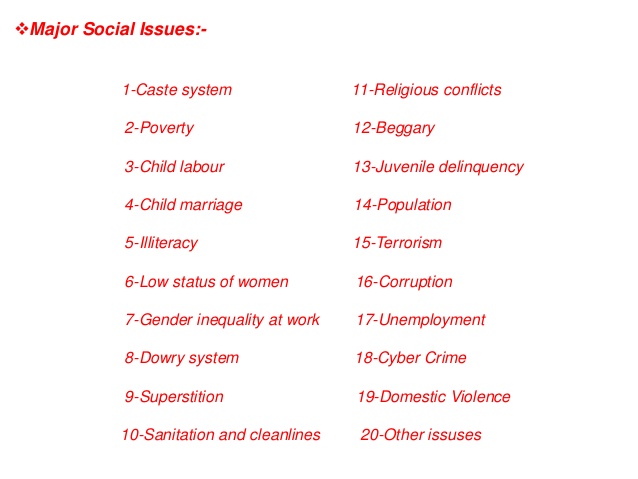
Examination Malpractice:
Examination malpractice is the term used to describe the various foul means employed by students and their helpers to pass examinations and get unmerited grades and results. Students engage in examinations malpractice at every level of education but it is more pronounced at the secondary and tertiary institutions of learning. It is a social vice that reached a high proportion in Nigeria. In recent years, government at the Federal level was forced to enact Decree 18 of 1984 in order to curtail the practice.

Causes of Examination Malpractice:
1. The crave to earn good grades in order to secure white collar jobs or gain admission to higher institutions.
2. Laziness – Those who are too lazy to study will not have the required knowledge and so want to cheat during examinations.
3. Truancy – Some students absent themselves from classes only to come to examination halls with intention to cheat.
4. Lack of self-confidence – Due to lack adequate preparation, most students lose confidence in their ability to pass and so resort to cheating.
5. Lack of enough Provision for higher education – There is always the lack of enough space for all to gain admission into higher institutions of learning in the country. This constitute a serious factor for cheating in order to score high cut-off marks.
6. Preference for Some Courses of study over others – Parents feel proud if their children are admitted for courses like Medicine, Law, Architecture, Petroleum Engineering etc irrespective of whether their children possess the ability and interest for such courses. In order to be ranked among the successful in the society, they encourage their children in cheating to pass requisite subjects at high grades.
7. The desire to live big – Many students prefer pleasure to hard-work, yet they want to live big in the society. Hence they resort to cheating in examinations to secure certificates that will guarantee their success in getting high paid jobs.
Effects of Examination Malpractice:
1. Loss of confidence in public examinations – Certificates issued by examining bodies and tertiary institutions no longer command public respect. Many school leavers including university graduates cannot defend their certificates during job placement interviews.
2. Inefficiency in places of work - Many school leavers including graduates from higher institutions lack the proficiency expected of holders of the certificates they carry.
3. Fall in the Standard of Education - Due to examination malpractice, the standard of education in Nigeria is seen to have fallen. Certificates are now being forged or given to those who can pay illicit prices for them even at the university level.
4. Promotion of other vices in the Society - The gross failure in the educational system has introduced so many other social vices in the society.
5. Disgraceful Rustication from Higher Institutions – Many students who succeeded in gaining admission to higher institutions through examination malpractice have been shown the way out when discovered or when they could not cope with the demands of the courses they were admitted to read.
Solution to The Problem of Examination Malpractice:
1. Enforcement of Decree 18 of 1984 on offenders to serve as deterrent to others
2. Provision of adequate learning facilities in schools to ensure good learning
3. Provision of enough space in schools to accommodate the increase in population of school age children.
4. School heads at the secondary school level should sit up to stamp out malpractices in their schools
5. Lecturers who collect gratification from students to award unmerited grades should divorce themselves from such evil practices in our tertiary institutions. Those caught doing this evil should be summarily dismissed.
6. Examination Supervisors and Teachers who aid and abet students to cheat during public examinations should be made to face the law if caught in the act.
7. Students should study and prepare well before going to sit for any examination.
Evaluation:
1. Mention six of the social problems in Nigeria today.
2. Mention two causes of examination malpractice
LESSON 8
CULTISM
Meaning of Cultism:
A cult is a secret society which is not open to everybody. Cultism therefore is an act of belonging to a secret cult in an educational institution. Members of a secret cult have particular spiritual beliefs usually regarded by others as misguided. They come together for certain purposes that might not be approved by other people. Members use dangerous weapons to kill and maim rival groups or innocent students in order to assert their influence and get undue advantages such as good grades, girl friends, etc in the campus.

https://www.slideshare.net/onikerahaman ... in-nigeria
Causes of cultism:
1. Protection: In the olden days, the real cause of cultism is protection against bad school administration or protection of interests in government jobs. Members come together in secret to discuss how to protect themselves.
2. Inadequate Parental Care: Parents no longer care about the friends their children and wards keep. Many do not care about funding their children’s education. The result is that, the child joins groups that would make them ‘comfortable’ at school and in the larger society. Cultists attract such people when they get to schools.
3. Disobedience to wise counsels given by parents to their wards as they get admitted to higher institutions.
4. Inordinate ambition to be recognized as a tough guy in campus
Effects of Cultism in Schools:
1. Threat to peace and security in campuses and the larger society when intra-cult clashes occur.
2. Cultists cause death and cause unhappiness to the families affected by their activities.
3. They make those who work diligently not to reap the result of their hard work.
4. Maintenance of discipline among students in schools becomes difficult as cult members specialize in taking laws into their hands.
5. Infringement on the right of others.
6. Fall in academic standard in campuses as lecturers are sometimes intimidated to award unmerited grades by threats.
7. Dismissal from school when the law catches up with cult members.
8. They give bad names to institutions and the society at large.
9. When caught, they give bad names to their families.
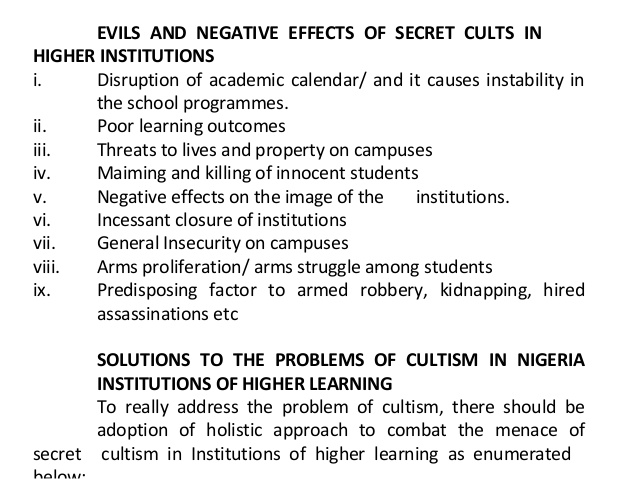
Solution to Cult Activities on Campuses:
1. Parents should impress it upon their children the dangers of cultism rather than supporting them.
2. Parents should show adequate care to their children. They should pay their children’s school fees regularly.
3. Campaign against cultism should be embarked upon on school campuses. Mass media should also be involved in the campaign against cultism.
4. Possible stern penalties should be given to students on admission and they should be made to sign undertakings.
5. Lecturers should be fair to all students and be transparent in their dealings with students.
6. School authorities should be vigilant in stamping out cultism from schools and campuses and be decisive in dealing with identified cases. Adequate security measures should be put in place to check the activities of cultists on the campuses.
7. Religious leaders should rise to the challenge of condemning this evil and not mice words when teaching and preaching against cultism.
Evaluation:
1. What is cultism?
2. Mention two causes of cultism.
3. Suggest two ways by which cultism could be eradicated.
LESSON 9
HIV/AIDS
Meaning of HIV/AIDS
HIV simply means Human Immunodeficiency Virus. It destroys the immune system of man. AIDS means Acquired Immune Deficiency Syndrome. This implies that the virus is not inborn but acquired from a carrier. The virus weakens the immune system and lead to series of diseases that can kill the carrier.
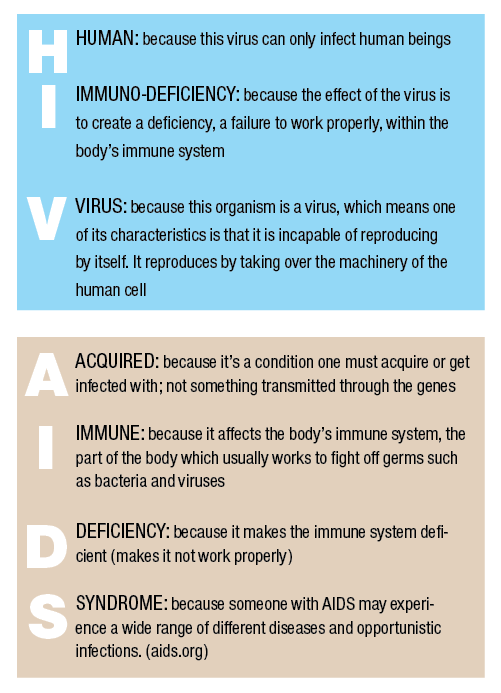
Causes of HIV/AIDS:
• Unprotected sexual intercourse with a carrier.
• Sharing of objects like needles, injection syringes, barbing clippers, razor blades, pins, toothbrushes etc. that are not sterilized with a carrier.
• Infected mother can transfer it to her unborn baby.
• Infected blood transfusion.
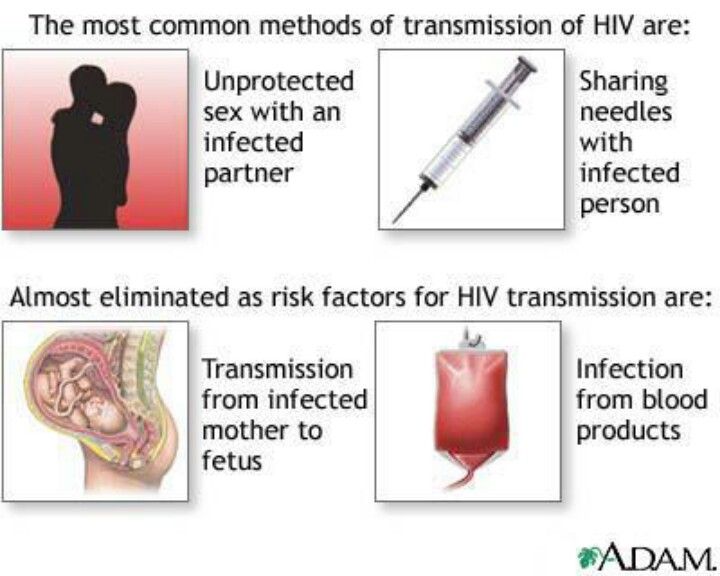
Effects of HIV/AIDS:
• HIV/AIDS always result in series of illnesses.
• It can eventually lead to death as it is incurable.
• A lot of money is being used in search of the cure and management of HIV/AIDS.
• A carrier can lose his job.
• It can lead to divorce.
• The carriers often suffer discrimination.
• It creates emotional problems such as anxiety, fear and sadness for the carrier and his loved ones.
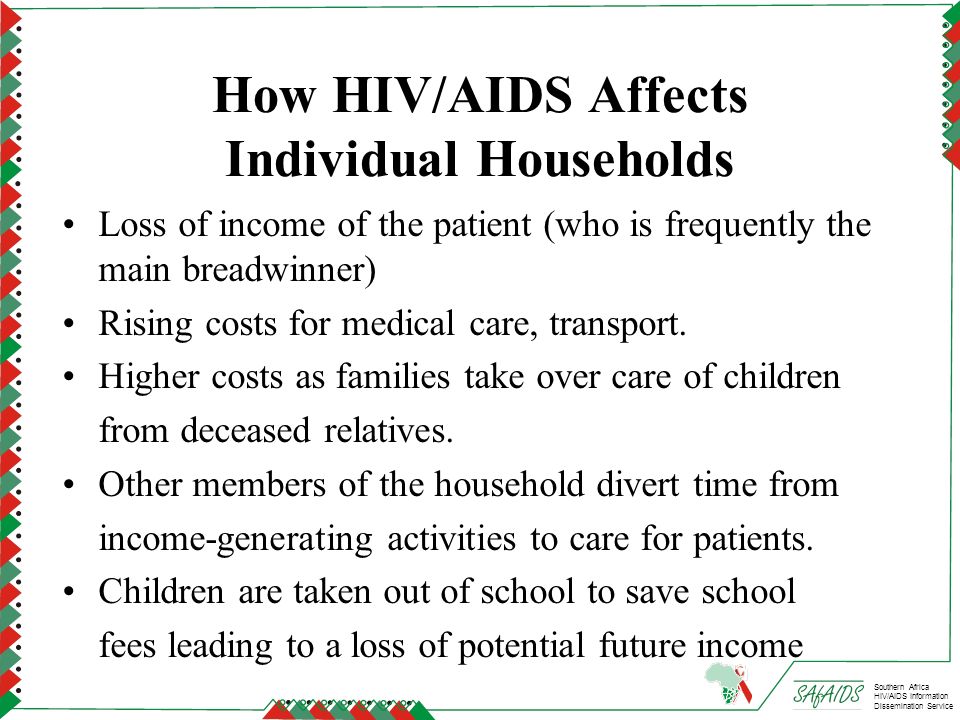
Prevention of HIV/AIDS:
Since HIV/AIDS has no cure, it has to be prevented. The following measures can be taken to prevent the incidence of HIV/AIDS:
People who are single should abstain from sexual intercourse while married ones should be faithful to their spouse.
Those who cannot abstain from indiscriminate sexual intercourse should use condom.
Those who use sharp objects such as doctors, barbers, and hairdresser should sterilize the instruments.
Blood should be properly screened and made sure they are HIV/AIDS free before transfusion.
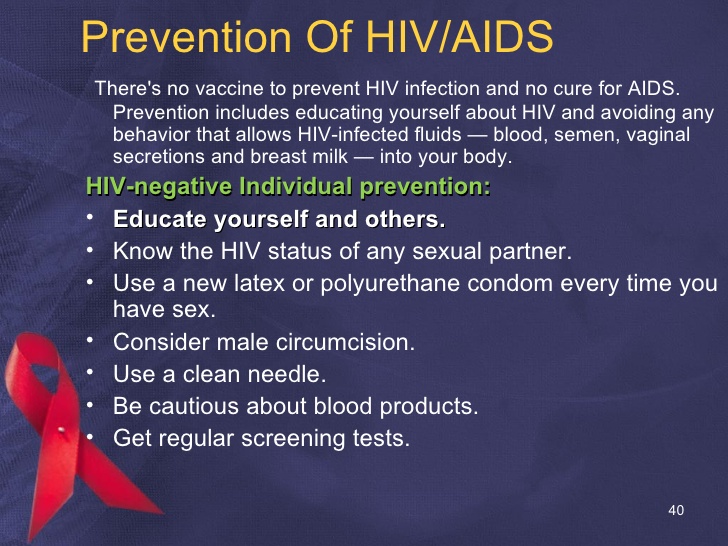
Evaluation:
1) What is the full meaning of (i) HIV? (ii)AIDS?
2) How can a person contact HIV/AIDS?
3) State three effects of HIV/AIDS.
4) Mention two ways of preventing HIV/AIDS.
Reading Assignment: Read Causes of social problems in Nigeria.
Topic: HIV/AIDS
Specific topic: Meaning and Causes of HIV/AIDS
Reference book: ANIKPO ET AL: BASIC SOCIAL STUDIES FOR JSS BOOK 1
Performance Objective: At the end of the lesson, the students should be able to;
(a) state the meaning of AIDS/HIV
(b) explain the causes of HIV/AIDS
Content:
MEANING OF HIV/AIDS:
HIV means Human Immune Virus
AIDS means Acquired immune Deficiency Syndrome. It is an incurable disease caused by a virus known as Human Immune Virus (HIV). When this virus gets into the blood stream the person become HIV infected person or HIV positive. The virus attacks the Immune system which helps the body to fight diseases. When this happens, the body loses its ability to fight injection. Finally, the person becomes ill from various diseases, diseases which eventually kill him or her.
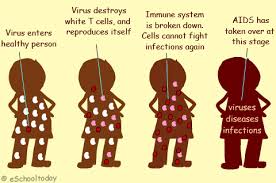

CAUSES OF HIV/AIDS
1. Unprotected sex with an infected person
2. Through transfusion of an HIV infected blood to an uninfected person.
3. Though a cut by an infected unsterilized sharp instruments, like blades, clippers etc.
4. Through injection with an infected needle
5. Sharing unsterilized injected needle
6. Oral sex
7. From injected pregnant mother to her baby through umbilical cord
8. Through HIV injected breast milk
9. Artificial insemination
10. Sharing tooth brushes and chewing sticks.
Evaluation:
(i) state the meaning of HIV/AIDS
(ii) mention at least ten causes of HIV/AIDS
Assignment: Explain the effects of HIV/AIDS
LESSON 10
Specific topic: Effects and prevention of HIV/AIDS
Reference book: SOLAKAT NEW SYLLABUS ON SOCIAL STUDIES FOR J.S.S VOLUME 2
Performance Objective: At the end of the lesson, the students should be able to;
(a) explain the effects of HIV/AIDS
(b) discuss how HIV/AIDS could be prevented
Content:
EFFECTS OF HIV/AIDS:
1. Loss of weight
2. Psychological and mental problem
3. Social stigma
4. Negative mind-set
5. Emotional imbalance
6. isolation/rejection
7. Breakdown of body Immune system
8. Incursion of multiple diseases
9. Severe pain
10. Poverty
11. Untimely death.
http://www.e-greenstar.com/Ghana/Bongo/ ... sld002.htm
PREVENTION OF HIV/AIDS
1. Abstinence
2. Be faithfully to your partner
3. Use condom (This is not 100% safe)
4. Avoid anal or oral sex
5. Avoid kissing
6. Avoid multiple sex partners
7. Avoid sexual intercourse with someone known to have multiple sex partners
8. Avoid sharing or re-using injection needles
9. Avoid sexual intercourse with infected partners
10. Before marriage both partners should test their blood to ensure they are HIV/AIDS free
https://www.slideshare.net/drsoumar/pre ... ds-1967309
Evaluation:
(i) state at least ten effects of HIV/AIDS
(ii) mention at least ten ways of preventing HIV/AIDS
Assignment: Mention at least five sexually transmitted infection from HIV/AIDS.
further studies
http://www.news-medical.net/health/What-is-HIVAIDS.aspx
http://en.wikipedia.org/wiki/HIV/AIDS
http://aids.gov/hiv-aids-basics/
practice test
http://www.emedicinehealth.com/hiv-aids ... q/quiz.htm
TOPIC: SOCIAL ISSUES AND PROBLEMS:
Content:
i. Contemporary Social Problems in Nigeria: Examination Malpractice
ii. Cultism
iii. HIV/AIDS, etc.
Contemporary Social Problems in Nigeria: Examination Malpractice
Meaning of Contemporary Social Problems:
Contemporary issues and social problems are happenings or challenges that are currently affecting many people in the society. Social problems could be described as those social vices that came about as a result of urbanization, development of cities, increase in human population, interaction among people of different social background, different ethnic groups, contact with foreign cultures, use of electronic media, ICT, TV, internet services, prohibited literature etc.
Among these social issues that have become problems are:
- Examination malpractice
- Cultism
- Terrorism
- HIV/AIDS
- Human Trafficking
- Prostitution
- Drug abuse
- Ritual killing
- Area boys syndrome
- Militancy
- Political killings
- Rigging of Elections
- Advance fees fraud (419)

Examination Malpractice:
Examination malpractice is the term used to describe the various foul means employed by students and their helpers to pass examinations and get unmerited grades and results. Students engage in examinations malpractice at every level of education but it is more pronounced at the secondary and tertiary institutions of learning. It is a social vice that reached a high proportion in Nigeria. In recent years, government at the Federal level was forced to enact Decree 18 of 1984 in order to curtail the practice.

Causes of Examination Malpractice:
1. The crave to earn good grades in order to secure white collar jobs or gain admission to higher institutions.
2. Laziness – Those who are too lazy to study will not have the required knowledge and so want to cheat during examinations.
3. Truancy – Some students absent themselves from classes only to come to examination halls with intention to cheat.
4. Lack of self-confidence – Due to lack adequate preparation, most students lose confidence in their ability to pass and so resort to cheating.
5. Lack of enough Provision for higher education – There is always the lack of enough space for all to gain admission into higher institutions of learning in the country. This constitute a serious factor for cheating in order to score high cut-off marks.
6. Preference for Some Courses of study over others – Parents feel proud if their children are admitted for courses like Medicine, Law, Architecture, Petroleum Engineering etc irrespective of whether their children possess the ability and interest for such courses. In order to be ranked among the successful in the society, they encourage their children in cheating to pass requisite subjects at high grades.
7. The desire to live big – Many students prefer pleasure to hard-work, yet they want to live big in the society. Hence they resort to cheating in examinations to secure certificates that will guarantee their success in getting high paid jobs.
Effects of Examination Malpractice:
1. Loss of confidence in public examinations – Certificates issued by examining bodies and tertiary institutions no longer command public respect. Many school leavers including university graduates cannot defend their certificates during job placement interviews.
2. Inefficiency in places of work - Many school leavers including graduates from higher institutions lack the proficiency expected of holders of the certificates they carry.
3. Fall in the Standard of Education - Due to examination malpractice, the standard of education in Nigeria is seen to have fallen. Certificates are now being forged or given to those who can pay illicit prices for them even at the university level.
4. Promotion of other vices in the Society - The gross failure in the educational system has introduced so many other social vices in the society.
5. Disgraceful Rustication from Higher Institutions – Many students who succeeded in gaining admission to higher institutions through examination malpractice have been shown the way out when discovered or when they could not cope with the demands of the courses they were admitted to read.
Solution to The Problem of Examination Malpractice:
1. Enforcement of Decree 18 of 1984 on offenders to serve as deterrent to others
2. Provision of adequate learning facilities in schools to ensure good learning
3. Provision of enough space in schools to accommodate the increase in population of school age children.
4. School heads at the secondary school level should sit up to stamp out malpractices in their schools
5. Lecturers who collect gratification from students to award unmerited grades should divorce themselves from such evil practices in our tertiary institutions. Those caught doing this evil should be summarily dismissed.
6. Examination Supervisors and Teachers who aid and abet students to cheat during public examinations should be made to face the law if caught in the act.
7. Students should study and prepare well before going to sit for any examination.
Evaluation:
1. Mention six of the social problems in Nigeria today.
2. Mention two causes of examination malpractice
LESSON 8
CULTISM
Meaning of Cultism:
A cult is a secret society which is not open to everybody. Cultism therefore is an act of belonging to a secret cult in an educational institution. Members of a secret cult have particular spiritual beliefs usually regarded by others as misguided. They come together for certain purposes that might not be approved by other people. Members use dangerous weapons to kill and maim rival groups or innocent students in order to assert their influence and get undue advantages such as good grades, girl friends, etc in the campus.

https://www.slideshare.net/onikerahaman ... in-nigeria
Causes of cultism:
1. Protection: In the olden days, the real cause of cultism is protection against bad school administration or protection of interests in government jobs. Members come together in secret to discuss how to protect themselves.
2. Inadequate Parental Care: Parents no longer care about the friends their children and wards keep. Many do not care about funding their children’s education. The result is that, the child joins groups that would make them ‘comfortable’ at school and in the larger society. Cultists attract such people when they get to schools.
3. Disobedience to wise counsels given by parents to their wards as they get admitted to higher institutions.
4. Inordinate ambition to be recognized as a tough guy in campus
Effects of Cultism in Schools:
1. Threat to peace and security in campuses and the larger society when intra-cult clashes occur.
2. Cultists cause death and cause unhappiness to the families affected by their activities.
3. They make those who work diligently not to reap the result of their hard work.
4. Maintenance of discipline among students in schools becomes difficult as cult members specialize in taking laws into their hands.
5. Infringement on the right of others.
6. Fall in academic standard in campuses as lecturers are sometimes intimidated to award unmerited grades by threats.
7. Dismissal from school when the law catches up with cult members.
8. They give bad names to institutions and the society at large.
9. When caught, they give bad names to their families.

Solution to Cult Activities on Campuses:
1. Parents should impress it upon their children the dangers of cultism rather than supporting them.
2. Parents should show adequate care to their children. They should pay their children’s school fees regularly.
3. Campaign against cultism should be embarked upon on school campuses. Mass media should also be involved in the campaign against cultism.
4. Possible stern penalties should be given to students on admission and they should be made to sign undertakings.
5. Lecturers should be fair to all students and be transparent in their dealings with students.
6. School authorities should be vigilant in stamping out cultism from schools and campuses and be decisive in dealing with identified cases. Adequate security measures should be put in place to check the activities of cultists on the campuses.
7. Religious leaders should rise to the challenge of condemning this evil and not mice words when teaching and preaching against cultism.
Evaluation:
1. What is cultism?
2. Mention two causes of cultism.
3. Suggest two ways by which cultism could be eradicated.
LESSON 9
HIV/AIDS
Meaning of HIV/AIDS
HIV simply means Human Immunodeficiency Virus. It destroys the immune system of man. AIDS means Acquired Immune Deficiency Syndrome. This implies that the virus is not inborn but acquired from a carrier. The virus weakens the immune system and lead to series of diseases that can kill the carrier.

Causes of HIV/AIDS:
• Unprotected sexual intercourse with a carrier.
• Sharing of objects like needles, injection syringes, barbing clippers, razor blades, pins, toothbrushes etc. that are not sterilized with a carrier.
• Infected mother can transfer it to her unborn baby.
• Infected blood transfusion.

Effects of HIV/AIDS:
• HIV/AIDS always result in series of illnesses.
• It can eventually lead to death as it is incurable.
• A lot of money is being used in search of the cure and management of HIV/AIDS.
• A carrier can lose his job.
• It can lead to divorce.
• The carriers often suffer discrimination.
• It creates emotional problems such as anxiety, fear and sadness for the carrier and his loved ones.

Prevention of HIV/AIDS:
Since HIV/AIDS has no cure, it has to be prevented. The following measures can be taken to prevent the incidence of HIV/AIDS:
People who are single should abstain from sexual intercourse while married ones should be faithful to their spouse.
Those who cannot abstain from indiscriminate sexual intercourse should use condom.
Those who use sharp objects such as doctors, barbers, and hairdresser should sterilize the instruments.
Blood should be properly screened and made sure they are HIV/AIDS free before transfusion.

Evaluation:
1) What is the full meaning of (i) HIV? (ii)AIDS?
2) How can a person contact HIV/AIDS?
3) State three effects of HIV/AIDS.
4) Mention two ways of preventing HIV/AIDS.
Reading Assignment: Read Causes of social problems in Nigeria.
Topic: HIV/AIDS
Specific topic: Meaning and Causes of HIV/AIDS
Reference book: ANIKPO ET AL: BASIC SOCIAL STUDIES FOR JSS BOOK 1
Performance Objective: At the end of the lesson, the students should be able to;
(a) state the meaning of AIDS/HIV
(b) explain the causes of HIV/AIDS
Content:
MEANING OF HIV/AIDS:
HIV means Human Immune Virus
AIDS means Acquired immune Deficiency Syndrome. It is an incurable disease caused by a virus known as Human Immune Virus (HIV). When this virus gets into the blood stream the person become HIV infected person or HIV positive. The virus attacks the Immune system which helps the body to fight diseases. When this happens, the body loses its ability to fight injection. Finally, the person becomes ill from various diseases, diseases which eventually kill him or her.


CAUSES OF HIV/AIDS
1. Unprotected sex with an infected person
2. Through transfusion of an HIV infected blood to an uninfected person.
3. Though a cut by an infected unsterilized sharp instruments, like blades, clippers etc.
4. Through injection with an infected needle
5. Sharing unsterilized injected needle
6. Oral sex
7. From injected pregnant mother to her baby through umbilical cord
8. Through HIV injected breast milk
9. Artificial insemination
10. Sharing tooth brushes and chewing sticks.
Evaluation:
(i) state the meaning of HIV/AIDS
(ii) mention at least ten causes of HIV/AIDS
Assignment: Explain the effects of HIV/AIDS
LESSON 10
Specific topic: Effects and prevention of HIV/AIDS
Reference book: SOLAKAT NEW SYLLABUS ON SOCIAL STUDIES FOR J.S.S VOLUME 2
Performance Objective: At the end of the lesson, the students should be able to;
(a) explain the effects of HIV/AIDS
(b) discuss how HIV/AIDS could be prevented
Content:
EFFECTS OF HIV/AIDS:
1. Loss of weight
2. Psychological and mental problem
3. Social stigma
4. Negative mind-set
5. Emotional imbalance
6. isolation/rejection
7. Breakdown of body Immune system
8. Incursion of multiple diseases
9. Severe pain
10. Poverty
11. Untimely death.
http://www.e-greenstar.com/Ghana/Bongo/ ... sld002.htm
PREVENTION OF HIV/AIDS
1. Abstinence
2. Be faithfully to your partner
3. Use condom (This is not 100% safe)
4. Avoid anal or oral sex
5. Avoid kissing
6. Avoid multiple sex partners
7. Avoid sexual intercourse with someone known to have multiple sex partners
8. Avoid sharing or re-using injection needles
9. Avoid sexual intercourse with infected partners
10. Before marriage both partners should test their blood to ensure they are HIV/AIDS free
https://www.slideshare.net/drsoumar/pre ... ds-1967309
Evaluation:
(i) state at least ten effects of HIV/AIDS
(ii) mention at least ten ways of preventing HIV/AIDS
Assignment: Mention at least five sexually transmitted infection from HIV/AIDS.
further studies
http://www.news-medical.net/health/What-is-HIVAIDS.aspx
http://en.wikipedia.org/wiki/HIV/AIDS
http://aids.gov/hiv-aids-basics/
practice test
http://www.emedicinehealth.com/hiv-aids ... q/quiz.htm
WEEK 4
LESSON 11
TOPIC: SOCIAL ISSUES AND PROBLEMS:
Content: i. Causes of contemporary social problems in Nigeria: Poverty and Corruption.
ii. More causes of social problems: Lack of parental care, Peer Group Influence and
Influence of the mass media and unchecked access to the internet.
iii. More causes of social problems: The proliferation of arms and ammunition.
Causes of Contemporary Social Problems in Nigeria
CAUSES OF SOCIAL PROBLEMS
Some causes of social problems are;
1. Poverty in the midst of plenty in the society or community.
2. Corruption among leaders.
3. Negative Peer Group Influence
4. Influence of the Mass Media
5. Unchecked access to the internet.
6. Divorce and broken homes
7. Cheating within the group.
8. Sexual immorality in the society.
9. Cultism among the youths and elders.
10. Parents encouraging their wards’ involvement in examination malpractice.
11. Greed for wealth at all costs without legitimate labour for it.
12. Lack of love and parental care in the family.
13. Unfaithful religious leaders.
14. Indiscipline
15. Disobedience to the laws of the land.
16. Ignorance
17. Injustice
18. Proliferation of Arms and Ammunitions.
Poverty – Poverty means the inability to provide the basic needs of life for oneself, family and dependants. This basic needs primarily are food, clothing and shelter. In addition, inability to provide quality education to enable proper and complete socialization of one’s children to make them live decent lives and be fulfilled are some of the causes of social problems in the society. This Is so because children brought up improperly develop to become social deviants who are lured into all kinds of crimes and illegitimate means of making money in order to keep body and soul together. Poverty sometimes leads to broken homes and disjointed up-bringing of children. Although Nigeria is blessed with many natural resources that should make Nigerian rich, the wealth is hijacked by the few leaders and make many Nigerians to live in poverty. About 70% of the population live below the bread line; meaning that majority of Nigerians are poor in the midst of plenty. No wonder Nigeria is classified by the United Nations recently as 40th among the world’s poorest countries.

Corruption - Corruption cover a wide area of social misbehavior, illegalities, breach of trust, and abuse of position or office. Nigeria is a country where the leaders enrich themselves through corrupt practices. Corruption is an illegitimate way of doing things for personal aggrandisement. Doing a wrong thing for undue advantage or gain. It includes all forms of evil practices that is done by government officials, politicians and those in places of authority, demanding and taking of bribery, fraudulent practices, mis-appropriation and embezzlement of public or corporate funds, diversion and perversion of justice, money laundering i.e. stealing public funds and banking them abroad in foreign banks, inflation of contracts amounts, receiving 10% of contract amount from contractors, granting undue favour to one’s tribesmen and friends instead of giving jobs or positions to those who merited them in places of employment, dishonesty, tribalism or ethnicity, nepotism, etc. Corruption is the product of greediness for more money and selfishness.

Evaluation:
1. Name at least 4 causes of contemporary social problems.
2. What is corruption?
3. What makes poverty a social problem?
LESSON 12
More Causes of Social Problems: Lack of Parental Care, Peer Group Influence and Influence of the Mass Media.
Lack of Family Love and Parental Care – Parents are expected to provide for the needs of their families where children are groomed for life. The family is the first social group to which a child belong. Love and harmony characterizes good family homes where parents are expected to live decent lives for their children to take after them. Some parents do not have the time to look after the affairs of their growing children because of the pursuit of money. Today, there are many parents who cannot afford to provide the basic necessities of life. This could be because of lack of a good means of livelihood, unemployment, oversized families where children and dependants are too many etc. Children from such homes become delinquent and might grow up to nuisances and miscreants in the society. Children left to themselves because parents have no time for them often degenerate into sexual immorality, prostitution and other forms of social crimes.
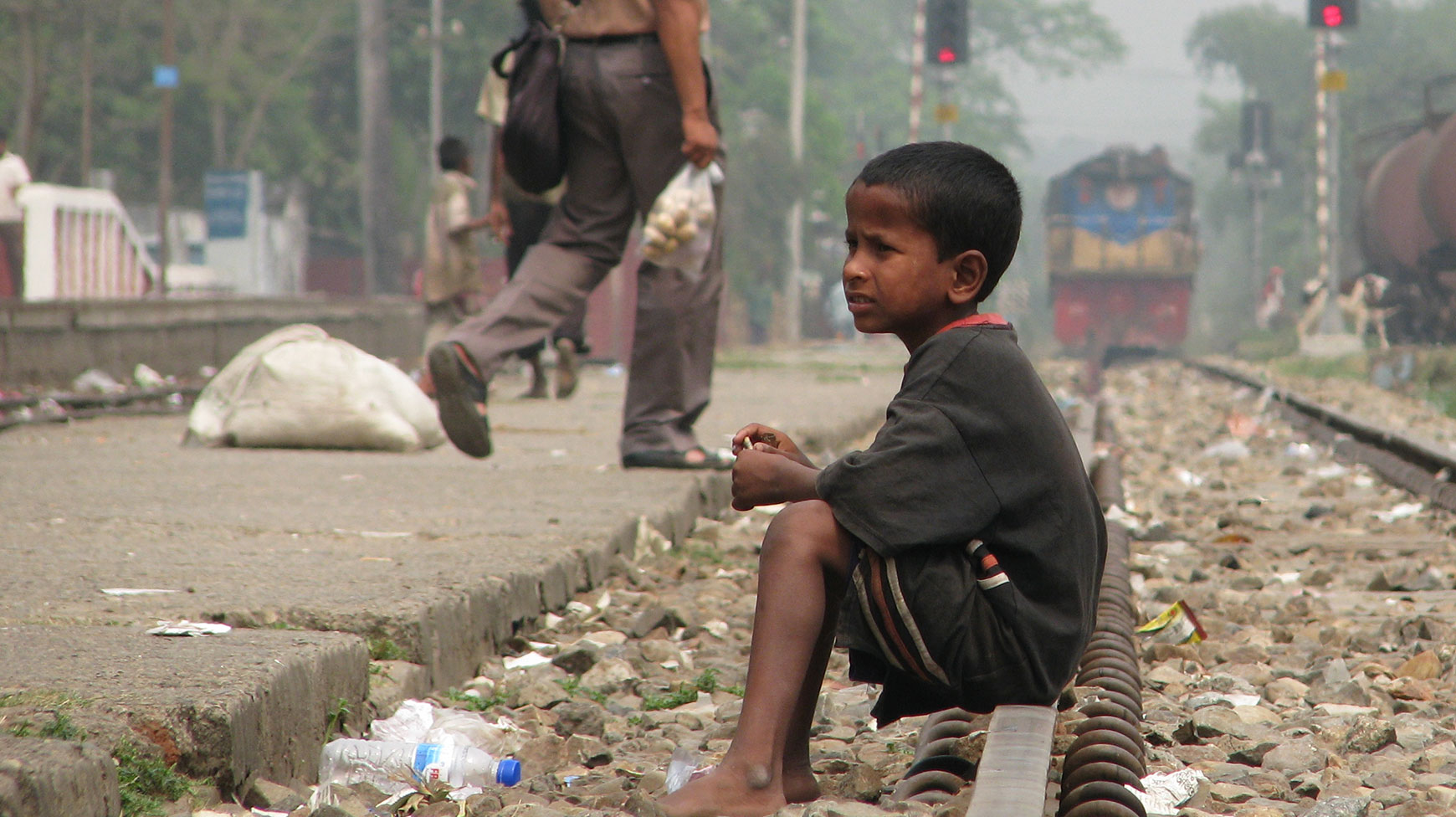
Peer Group Influence – Many people follow their age-mates, friends and class-mates to do wrong things thinking that they are smart. They turn out to be social misfits. The influence of age group is often very powerful and the chance of being influenced positively or negatively is high especially at adolescent stage (secondary school stage of life). When peer group or age group influence is negative, the affected individuals become what they are influenced to be, drug addicts, smokers, drunkard, thief and armed robbers, Cyber café crooks (yahoo-yahoo boys or internet swindlers, area boys, cultism, etc.
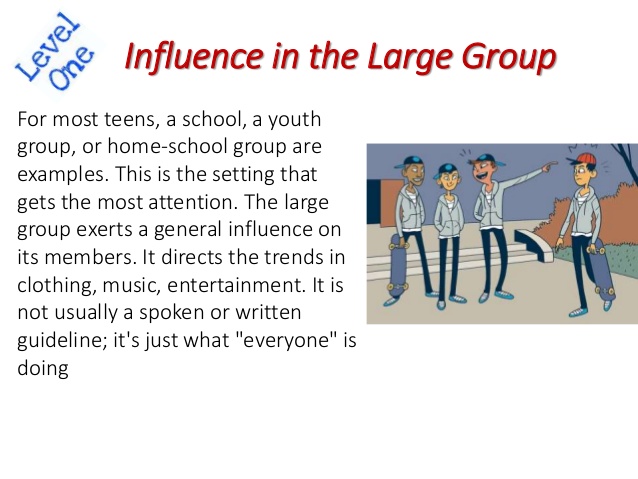
Influence of Mass Media - We live in satellite or internet age where information travel round the globe in a matter of seconds. Adolescents and young men and women who are the children of this age are easily influenced by new trends and could be tempted to put into practice odd behaviours and tricks they read about in newspapers, magazines, books or have watched on TV, videos and from the internet. Some of these information are negatively inclined and they make young people who are not well guided to become miscreants, cyber fraudsters and mischief makers in society.

Evaluation:
1. What is age group?
2. State two positive ways by which you can be influenced by your friend.
3. Mention two types of negative information from the mass media.
LESSON 13
More causes of social problems: The proliferation of arms and ammunition
The proliferation of arms and ammunition - Unlike the past, since after the Nigeria-Biafra civil war, much arms and ammunition has become proliferated in Nigeria. Much arms and ammunition has been illegally imported or smuggled into the country. The politicians aggravated the situation by recruiting jobless youths and arming them with weapons purchased with stolen public funds, as political tugs to undo their opponents through election rigging, ballot box snatching and stuffing, political assassination etc. The fact that much arms find their way into the hands of social misfits and miscreants, crime has increased tremendously in the society – security has become a serious challenge in the country today. Rampant cases of suicide bombing, kidnapping, hostage taking, militancy, armed robbery, ritual killing and politically motivated assassinations make the society in-secured; life is no longer safe in the land.

Evaluation:
1. Mention five social problems caused by the proliferation of arms and ammunition in Nigeria.
2. Explain the following: (i) kidnapping (ii) hostage taking (iii) suicide bombing (iv) militancy and (v) political assassination.
Reading Assignment:
Read about the challenges associated with contemporary social problems.
Assignment:
Objective Test:
1. The following are social problems except……..
(a) Cultism (b) Reading (c) Prostitution (d) kidnapping.
2. One of the following is a cause of social problems; which?
(a) Poverty (b) Dancing (c) Education (d) Moral purity.
3. Internet fraud is related to…..
(a) Lack of parental love and care (b) Drug abuse (c) Ritual killing
(d) Influence of mass media.
4. Corruption is common in Nigeria among….
(a) Government officials (b) Politicians (c) Civil Servants (d) All of the above.
5. Some students join cult groups for the following reasons except…..
(a) Peer Group (b) Security (c) Dancing (d) Campus politics
Essay Test:
1. State 5 causes of social problems in Nigeria today.
2. Mention 4 negative things that you must not allow your friends to influence you to do.
3. Write a short essay on the topic: “The Evils of Proliferation of Arms and Ammunitions in Nigeria Today”.
TOPIC: SOCIAL ISSUES AND PROBLEMS:
Content: i. Causes of contemporary social problems in Nigeria: Poverty and Corruption.
ii. More causes of social problems: Lack of parental care, Peer Group Influence and
Influence of the mass media and unchecked access to the internet.
iii. More causes of social problems: The proliferation of arms and ammunition.
Causes of Contemporary Social Problems in Nigeria
CAUSES OF SOCIAL PROBLEMS
Some causes of social problems are;
1. Poverty in the midst of plenty in the society or community.
2. Corruption among leaders.
3. Negative Peer Group Influence
4. Influence of the Mass Media
5. Unchecked access to the internet.
6. Divorce and broken homes
7. Cheating within the group.
8. Sexual immorality in the society.
9. Cultism among the youths and elders.
10. Parents encouraging their wards’ involvement in examination malpractice.
11. Greed for wealth at all costs without legitimate labour for it.
12. Lack of love and parental care in the family.
13. Unfaithful religious leaders.
14. Indiscipline
15. Disobedience to the laws of the land.
16. Ignorance
17. Injustice
18. Proliferation of Arms and Ammunitions.
Poverty – Poverty means the inability to provide the basic needs of life for oneself, family and dependants. This basic needs primarily are food, clothing and shelter. In addition, inability to provide quality education to enable proper and complete socialization of one’s children to make them live decent lives and be fulfilled are some of the causes of social problems in the society. This Is so because children brought up improperly develop to become social deviants who are lured into all kinds of crimes and illegitimate means of making money in order to keep body and soul together. Poverty sometimes leads to broken homes and disjointed up-bringing of children. Although Nigeria is blessed with many natural resources that should make Nigerian rich, the wealth is hijacked by the few leaders and make many Nigerians to live in poverty. About 70% of the population live below the bread line; meaning that majority of Nigerians are poor in the midst of plenty. No wonder Nigeria is classified by the United Nations recently as 40th among the world’s poorest countries.

Corruption - Corruption cover a wide area of social misbehavior, illegalities, breach of trust, and abuse of position or office. Nigeria is a country where the leaders enrich themselves through corrupt practices. Corruption is an illegitimate way of doing things for personal aggrandisement. Doing a wrong thing for undue advantage or gain. It includes all forms of evil practices that is done by government officials, politicians and those in places of authority, demanding and taking of bribery, fraudulent practices, mis-appropriation and embezzlement of public or corporate funds, diversion and perversion of justice, money laundering i.e. stealing public funds and banking them abroad in foreign banks, inflation of contracts amounts, receiving 10% of contract amount from contractors, granting undue favour to one’s tribesmen and friends instead of giving jobs or positions to those who merited them in places of employment, dishonesty, tribalism or ethnicity, nepotism, etc. Corruption is the product of greediness for more money and selfishness.

Evaluation:
1. Name at least 4 causes of contemporary social problems.
2. What is corruption?
3. What makes poverty a social problem?
LESSON 12
More Causes of Social Problems: Lack of Parental Care, Peer Group Influence and Influence of the Mass Media.
Lack of Family Love and Parental Care – Parents are expected to provide for the needs of their families where children are groomed for life. The family is the first social group to which a child belong. Love and harmony characterizes good family homes where parents are expected to live decent lives for their children to take after them. Some parents do not have the time to look after the affairs of their growing children because of the pursuit of money. Today, there are many parents who cannot afford to provide the basic necessities of life. This could be because of lack of a good means of livelihood, unemployment, oversized families where children and dependants are too many etc. Children from such homes become delinquent and might grow up to nuisances and miscreants in the society. Children left to themselves because parents have no time for them often degenerate into sexual immorality, prostitution and other forms of social crimes.

Peer Group Influence – Many people follow their age-mates, friends and class-mates to do wrong things thinking that they are smart. They turn out to be social misfits. The influence of age group is often very powerful and the chance of being influenced positively or negatively is high especially at adolescent stage (secondary school stage of life). When peer group or age group influence is negative, the affected individuals become what they are influenced to be, drug addicts, smokers, drunkard, thief and armed robbers, Cyber café crooks (yahoo-yahoo boys or internet swindlers, area boys, cultism, etc.

Influence of Mass Media - We live in satellite or internet age where information travel round the globe in a matter of seconds. Adolescents and young men and women who are the children of this age are easily influenced by new trends and could be tempted to put into practice odd behaviours and tricks they read about in newspapers, magazines, books or have watched on TV, videos and from the internet. Some of these information are negatively inclined and they make young people who are not well guided to become miscreants, cyber fraudsters and mischief makers in society.

Evaluation:
1. What is age group?
2. State two positive ways by which you can be influenced by your friend.
3. Mention two types of negative information from the mass media.
LESSON 13
More causes of social problems: The proliferation of arms and ammunition
The proliferation of arms and ammunition - Unlike the past, since after the Nigeria-Biafra civil war, much arms and ammunition has become proliferated in Nigeria. Much arms and ammunition has been illegally imported or smuggled into the country. The politicians aggravated the situation by recruiting jobless youths and arming them with weapons purchased with stolen public funds, as political tugs to undo their opponents through election rigging, ballot box snatching and stuffing, political assassination etc. The fact that much arms find their way into the hands of social misfits and miscreants, crime has increased tremendously in the society – security has become a serious challenge in the country today. Rampant cases of suicide bombing, kidnapping, hostage taking, militancy, armed robbery, ritual killing and politically motivated assassinations make the society in-secured; life is no longer safe in the land.

Evaluation:
1. Mention five social problems caused by the proliferation of arms and ammunition in Nigeria.
2. Explain the following: (i) kidnapping (ii) hostage taking (iii) suicide bombing (iv) militancy and (v) political assassination.
Reading Assignment:
Read about the challenges associated with contemporary social problems.
Assignment:
Objective Test:
1. The following are social problems except……..
(a) Cultism (b) Reading (c) Prostitution (d) kidnapping.
2. One of the following is a cause of social problems; which?
(a) Poverty (b) Dancing (c) Education (d) Moral purity.
3. Internet fraud is related to…..
(a) Lack of parental love and care (b) Drug abuse (c) Ritual killing
(d) Influence of mass media.
4. Corruption is common in Nigeria among….
(a) Government officials (b) Politicians (c) Civil Servants (d) All of the above.
5. Some students join cult groups for the following reasons except…..
(a) Peer Group (b) Security (c) Dancing (d) Campus politics
Essay Test:
1. State 5 causes of social problems in Nigeria today.
2. Mention 4 negative things that you must not allow your friends to influence you to do.
3. Write a short essay on the topic: “The Evils of Proliferation of Arms and Ammunitions in Nigeria Today”.
WEEK 5
LESSON 14
Topic: Social Issues and Problems: Problems associated with Contemporary Social Problems in
Nigeria as they affect (i) the Individual (ii) the Family (iii) the Nation
Content: i. Social Problems as they Affect the Individual
ii. Social Problems as they Affect the Family
iii. Social Problems as they Affect the Nation.
Social Problems as they Affect the Individual
The following are some of the social problems affecting individuals in Nigeria.
1. Sexual immorality: Unwholesome evil pressures from the opposite sex that exposes individuals to varieties of sexually transmitted diseases (STD) such as syphilis, gonorrhea, herpes, staphylococcus, HIV/AIDS, and unwanted pregnancies, dropping out of school and thus truncating one’s education and early unplanned premature marriage or single parenthood for ladies. etc.

2. Poverty: Poverty caused by unemployment or high cost of living prevents individuals to meet their basic needs of life. Poverty itself generates malnutrition, sicknesses and diseases. This sometimes lead to divorce cases and broken homes. Children who could not complete their education due to poverty of their parents sometimes end up becoming miscreants, area boys, prostitutes etc in the society.

3. Negative peer pressure: Peer pressure on some youths in institutions of higher learning has made them join secret cults that ruin their careers. Peer group influence also cause some youths to become drug addicts that may lead them to insanity, schizophrenic disorders like paranoia, psychosis and untimely death.
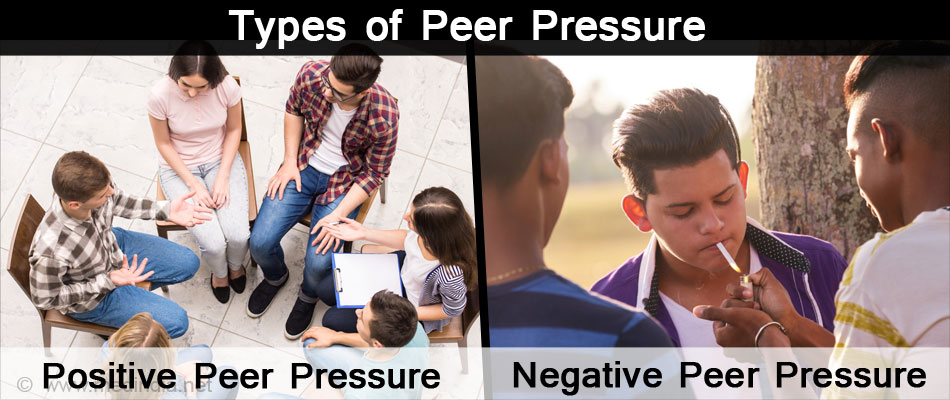
4. Crimes: Crimes in the society have led to insecurity of individual lives and properties.

Evaluation:
1. In what three ways do social problems affect individuals in Nigeria.
2. How can one avoid STD and HIV/AIDS ?
LESSON 15
Social Problems as they Affect the Family:
The following are some of the social problems affecting families in Nigeria;
1. Conflict: Contemporary problems in the society such as unemployment have increased conflicts and squabbles at home. These occur when the father could not provide for the needs of the family. It may lead to divorce and broken homes.

2. Sexual immorality: Sexual immorality such as incest is now taking place in some families in Nigeria. Incest is a social taboo referring to sexual act between those who are related by blood. Extra-marital affairs by married men or women result in bringing diseases to the family; diseases such as STD, HIV/AIDS. Children especially the females are becoming wayward causing disgrace and heartache to parents.

3. Indiscipline and Disobedience in the Family: Respect to the authority of parents break down. Wives no longer obey nor respect their husbands. Children’s disobedience increases, they rebel against their parents. The social fabric that make the home the basis for social stability in the society breaks down.

4. Child abuse: Because of poverty and the need to make ends meet makes children to be engaged in street hawking which exposes them to all forms of evil such as kidnapping, raping, promiscuity, truancy or lateness to and absence from school, delinquency, etc
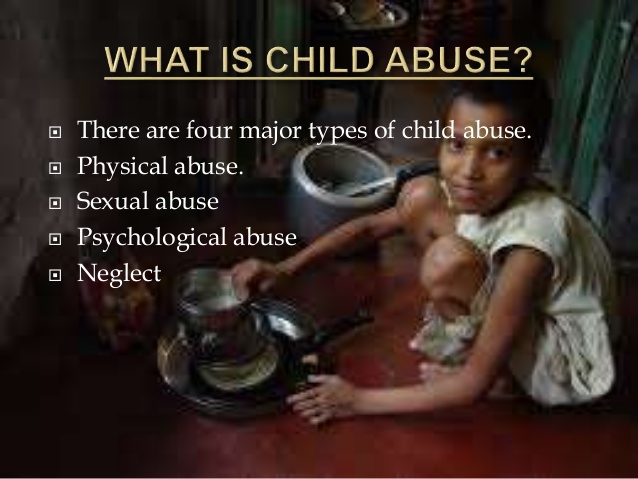
5. High Cost of Living: Many families in Nigeria today contend with high cost of living as they struggle to provide for their own security, water and light due to the inefficiency and corruption of public officers.
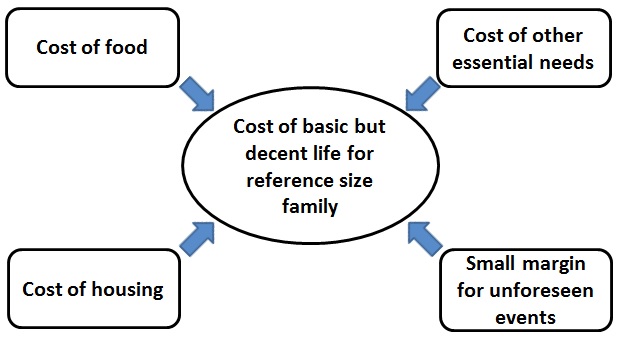
6. Lack of Trust: The social problems in Nigeria have created lack of trust in the family. This often results in disunity where each member of the family behaves the way he or she likes.
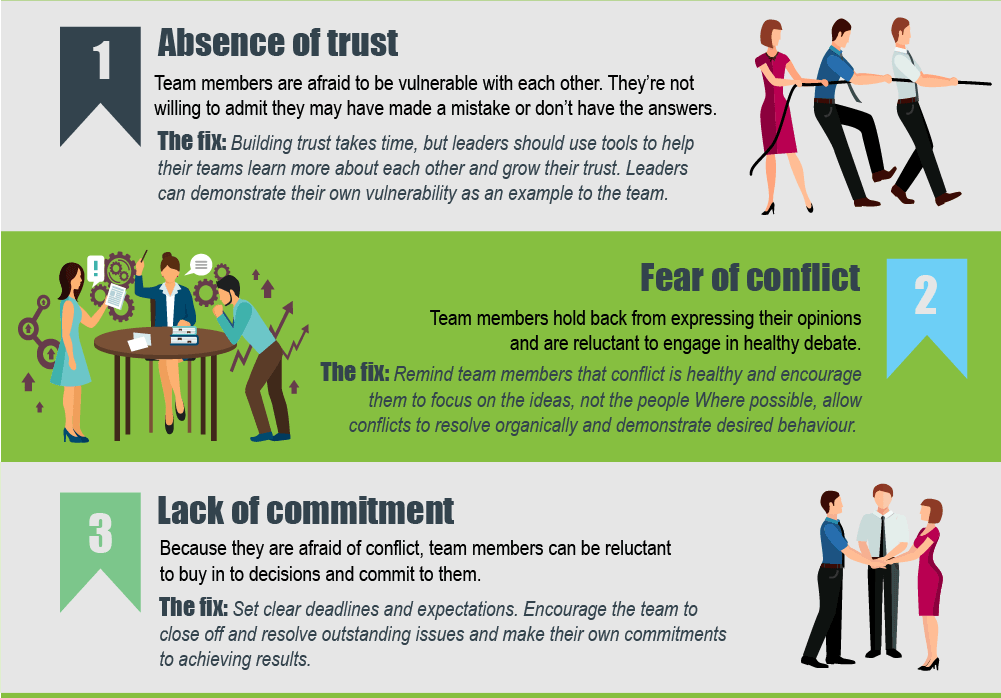
7. Divorce: Lack of trust, sexual promiscuity, and poverty have contributed a great deal to the high rate of divorce in Nigeria. The children often suffer as a result of divorce and often become socially unbalanced.

Evaluation:
1. List three social problems affecting families in Nigeria.
2. Explain the taboo known as incest.
LESSON 16
Social Problems Affecting Nation
The following are some of the social problems affecting Nigeria as a nation;
1. Political Instability: Contemporary social problems such as electoral fraud and social injustice have led to political instability in Nigeria. Also military incursion into governance through coup de etat and counter coup de etat had led to political instability and civil war in Nigeria. Political instability is characterized by frequent change of governments where authoritarian and dictatorial rules prevail.

2. Social Instability: This refers to breakdown of law and order in the society. Under this condition, there will be insecurity of lives and properties. Social problems such as crime, injustice, corruption, corruption and inefficiency have led to social instability.

3. Militancy – Militancy due to perceived socio-economic injustice has led to instability in the oil producing Niger Delta where youths take up arms against the establishment. Other social-cultural groups becoming violent in different parts of Nigeria to demand for one thing or the other. Currently is the Terrorist group “Boko-Haram” (an Islamic Sect) bombing and destroying lives and property in parts of Northern Nigeria through suicide missions claiming that Western Education is Sin, but perceived to be a politically motivated sponsored group. These groups posed very serious security challenges to the country.

4. Economic depression: Social problems such as corruption, inefficiency, greed, and selfishness have led to economic depression in Nigeria. Basic facilities and amenities such as pipe borne water, electricity, and health system are not functioning well.

5. Disunity: Contemporary social issues and problems such as ethnicity have led to disunity in our country. This has resulted in ethnic and religious violence especially in the northern part of the country.

Evaluation:
1. State four social problems affecting Nigeria as a nation.
2. Explain two of the stated social problems.
Reading Assignment:
Read about suggested solutions to contemporary social problems in Nigeria.
Assignment:
Objective Test:
1. Political instability is a social problem affecting ________
(a) individuals (b) families (c) nations (d) all of the above
2. Conflict is a social problem affecting __________
(a) individuals (b) families (c) nations (d) none of the above
3. Crime is a social problem carried out by _________(a) individuals (b)families (c) nations (d) communities
4. Sexual act between those who are related by blood is called ______
(a) a crime (b) an incest (c) an evil (d) a taboo
5. The breakdown of law and order in the society is referred to as _______ instability
(a) political (b) economic (c) social (d) none of the above.
Essay Test:
State ways by which contemporary social problems affect each of the following in Nigeria:
a. The Individual
b. The Family
c. The Nation
Topic: Social Issues and Problems: Problems associated with Contemporary Social Problems in
Nigeria as they affect (i) the Individual (ii) the Family (iii) the Nation
Content: i. Social Problems as they Affect the Individual
ii. Social Problems as they Affect the Family
iii. Social Problems as they Affect the Nation.
Social Problems as they Affect the Individual
The following are some of the social problems affecting individuals in Nigeria.
1. Sexual immorality: Unwholesome evil pressures from the opposite sex that exposes individuals to varieties of sexually transmitted diseases (STD) such as syphilis, gonorrhea, herpes, staphylococcus, HIV/AIDS, and unwanted pregnancies, dropping out of school and thus truncating one’s education and early unplanned premature marriage or single parenthood for ladies. etc.

2. Poverty: Poverty caused by unemployment or high cost of living prevents individuals to meet their basic needs of life. Poverty itself generates malnutrition, sicknesses and diseases. This sometimes lead to divorce cases and broken homes. Children who could not complete their education due to poverty of their parents sometimes end up becoming miscreants, area boys, prostitutes etc in the society.

3. Negative peer pressure: Peer pressure on some youths in institutions of higher learning has made them join secret cults that ruin their careers. Peer group influence also cause some youths to become drug addicts that may lead them to insanity, schizophrenic disorders like paranoia, psychosis and untimely death.

4. Crimes: Crimes in the society have led to insecurity of individual lives and properties.

Evaluation:
1. In what three ways do social problems affect individuals in Nigeria.
2. How can one avoid STD and HIV/AIDS ?
LESSON 15
Social Problems as they Affect the Family:
The following are some of the social problems affecting families in Nigeria;
1. Conflict: Contemporary problems in the society such as unemployment have increased conflicts and squabbles at home. These occur when the father could not provide for the needs of the family. It may lead to divorce and broken homes.

2. Sexual immorality: Sexual immorality such as incest is now taking place in some families in Nigeria. Incest is a social taboo referring to sexual act between those who are related by blood. Extra-marital affairs by married men or women result in bringing diseases to the family; diseases such as STD, HIV/AIDS. Children especially the females are becoming wayward causing disgrace and heartache to parents.

3. Indiscipline and Disobedience in the Family: Respect to the authority of parents break down. Wives no longer obey nor respect their husbands. Children’s disobedience increases, they rebel against their parents. The social fabric that make the home the basis for social stability in the society breaks down.

4. Child abuse: Because of poverty and the need to make ends meet makes children to be engaged in street hawking which exposes them to all forms of evil such as kidnapping, raping, promiscuity, truancy or lateness to and absence from school, delinquency, etc

5. High Cost of Living: Many families in Nigeria today contend with high cost of living as they struggle to provide for their own security, water and light due to the inefficiency and corruption of public officers.

6. Lack of Trust: The social problems in Nigeria have created lack of trust in the family. This often results in disunity where each member of the family behaves the way he or she likes.

7. Divorce: Lack of trust, sexual promiscuity, and poverty have contributed a great deal to the high rate of divorce in Nigeria. The children often suffer as a result of divorce and often become socially unbalanced.

Evaluation:
1. List three social problems affecting families in Nigeria.
2. Explain the taboo known as incest.
LESSON 16
Social Problems Affecting Nation
The following are some of the social problems affecting Nigeria as a nation;
1. Political Instability: Contemporary social problems such as electoral fraud and social injustice have led to political instability in Nigeria. Also military incursion into governance through coup de etat and counter coup de etat had led to political instability and civil war in Nigeria. Political instability is characterized by frequent change of governments where authoritarian and dictatorial rules prevail.

2. Social Instability: This refers to breakdown of law and order in the society. Under this condition, there will be insecurity of lives and properties. Social problems such as crime, injustice, corruption, corruption and inefficiency have led to social instability.

3. Militancy – Militancy due to perceived socio-economic injustice has led to instability in the oil producing Niger Delta where youths take up arms against the establishment. Other social-cultural groups becoming violent in different parts of Nigeria to demand for one thing or the other. Currently is the Terrorist group “Boko-Haram” (an Islamic Sect) bombing and destroying lives and property in parts of Northern Nigeria through suicide missions claiming that Western Education is Sin, but perceived to be a politically motivated sponsored group. These groups posed very serious security challenges to the country.

4. Economic depression: Social problems such as corruption, inefficiency, greed, and selfishness have led to economic depression in Nigeria. Basic facilities and amenities such as pipe borne water, electricity, and health system are not functioning well.

5. Disunity: Contemporary social issues and problems such as ethnicity have led to disunity in our country. This has resulted in ethnic and religious violence especially in the northern part of the country.

Evaluation:
1. State four social problems affecting Nigeria as a nation.
2. Explain two of the stated social problems.
Reading Assignment:
Read about suggested solutions to contemporary social problems in Nigeria.
Assignment:
Objective Test:
1. Political instability is a social problem affecting ________
(a) individuals (b) families (c) nations (d) all of the above
2. Conflict is a social problem affecting __________
(a) individuals (b) families (c) nations (d) none of the above
3. Crime is a social problem carried out by _________(a) individuals (b)families (c) nations (d) communities
4. Sexual act between those who are related by blood is called ______
(a) a crime (b) an incest (c) an evil (d) a taboo
5. The breakdown of law and order in the society is referred to as _______ instability
(a) political (b) economic (c) social (d) none of the above.
Essay Test:
State ways by which contemporary social problems affect each of the following in Nigeria:
a. The Individual
b. The Family
c. The Nation
WEEK 6
LESSON 17
Topic: Social Issues and Problems: Solutions or Measures of Solving Contemporary Social
Problems – (Government policies, civil society participation, personal discipline, etc).
Content:
Contemporary social problems have the following measures in solving them
1. Rule of law
2. Anti-corruption agencies
3. Civil society
4. Government policies
5. Infrastructural development and maintenance
6. Job Creation to reduce unemployment
7. Religious organization
8. Public opinion leader
9. School
10. Personal discipline
11. Security agencies
Solutions or Measures of Solving Social Problems: The Rule of Law, Anti-Corruption Agencies, Civil Societies and Government Policies
Rule of law: This means that no one is above the law; that is, before the law all men are equal. Most of the contemporary social problems can be eradicated if we all obey the laws of the country. All offenders including corrupt leaders who steal or embezzle public funds should be punished irrespective of their wealth or position. There should be no ‘sacred cows’.
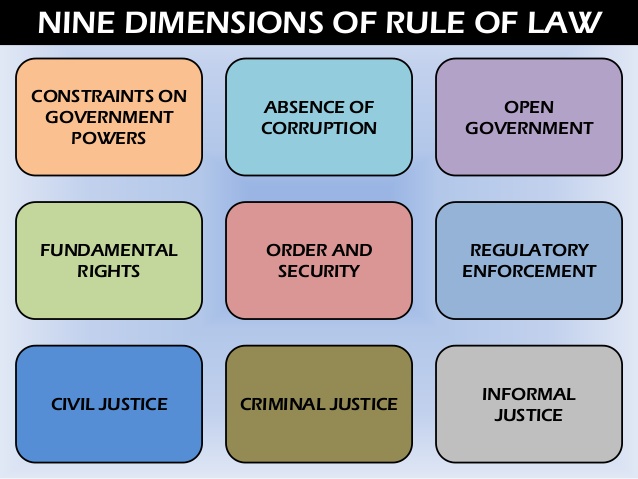
Anti-Corruption Agencies – Anti corruption agencies such EFCC and ICPC should be allowed to operate the way they see fit, and no corrupt leader should be shielded, neither should any of their officers be exempted from facing the law when they are found culpable. The Economic and Financial Crime Commission (EFCC) and the Independent Corrupt Practices and Related Offences Commission (ICPC) all such agencies should be headed by men and women of proven integrity who will not compromise standards or act corruptly themselves.

Civil Societies: Civil Societies such as Campaign for Democracy (CD), National Association of Democratic Lawyers(NADL), Committee for Defense of Human Right(CDHR), etc should continue their good work of correcting the ills in our country.

Government Policies: Governments exists to see to the good orderliness of society. Government policies should be based on national interest. Policies should be aimed at enhancing the welfare of all the people. Government should evolve policies that aim at correcting the ills of the society.

Evaluation:
1. What is the rule of law and how can it solve social problems?
2. In which ways can government policies help to solve social problems?
LESSON 18
Measures of Solving Social Problems: Job Creation, Infrastructural Development and Religious Organizations
Job Creation - The Governments, both States and Federal, should deliberately create jobs for school leavers. Government should also create healthy business and investment environment that will encourage both local and foreign investors, who will in turn create jobs for school leavers to reduce unemployment among youths.

Infrastructural Development – Government should construct new and maintain existing infrastructural facilities such as roads, railways, airports and seaports etc, stabilize, expand and improve on electricity power supply, water supply etc to encourage business and economic productions, and to improve the quality of life.

Religious Organizations - Churches and Mosques should increase their efforts in inculcating in their members the fear of God, desirable attitudes and values that enhance common good. Religious leaders should emphatically condemn corruption among their members especially the influential ones and those in secular positions of authority. To do this effectively, they should shun gifts and also live above board in all their dealings.
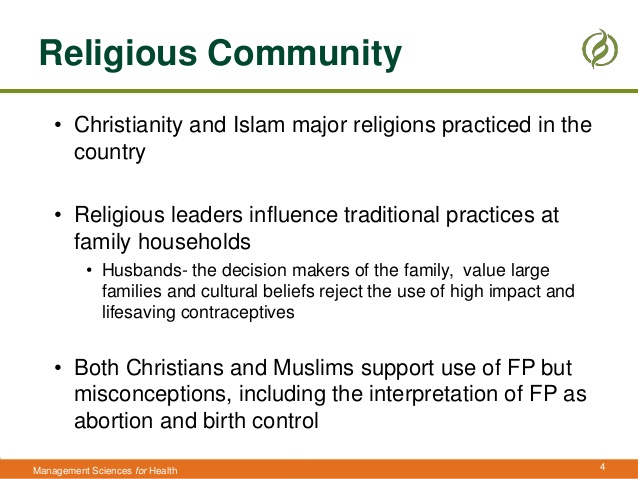
Measures of solving social problems: Public Opinion Leaders, School, Personal Discipline and Security Organizations:
Public Opinion Leaders - Public opinion leaders are citizens who stand for the common good of the country and speak against the ills of the society. They should not relent on their efforts and should be protected by law. The press should be given unfettered freedom to practice their profession in accordance to the law. The press should not fail to publish the opinions of the public in the mass media.

School: The School is a formal agent of socialization. The teaching of citizenship education, civic education, social and religious studies in schools will help to solve some of these problems. Schools should be equipped with needed facilities that will enhance quality education whose products will not become vagrants and miscreants in society.

Personal Discipline - if individuals engage in self discipline which is self control that brings about emotional stability, train members of their family to do the same, there would be a reduction of contemporary social problems in our country. Saying ‘No’ to immoral sexual allurements or demands from the opposite sex.

Security Organizations – The police, the SSS, and other security agencies should be given specialized training on how to detect crimes and fish out criminals of all descriptions, whether terrorists, suicide bombers, militants, armed robbers, kidnappers etc, and bring them to face the law.

Evaluation:
1. How can job creation solve social problems?
2. Mention ways by which religious organizations contribute to solving social problems.
3. What roles can the school play in solving social problems?
4. Why are security organizations necessary in the society?
READING ASSIGNMENT
Read the chapter in your textbook on National Identity and Integration.
Assignment:
Objective Test:
1. All but one of the following agents can assist in solving contemporary problems (a) Church (b) Mosque (c) Delinquents (d) Non-Governmental organization.
2. The full meaning of EFCC is………………………………………….. (a) Economic and Finance Crimes Commission (b) Economic and Finance Corporate Commission (c) Emergency Finance Crimes Commission (d) Endowment Fiscal Crimes Commission.
3. Internet or Cyber fraud to………… (a) Drug abuse (b) Ritual killing (c) Lack of parental love and care (d) Influence of mass media.
4. ------------- corrects the ills in our country (a) rule of law (b) civil society (c) government policy (d) public opinion leaders
5. Contemporary social problems can be eradicated if we obey ------------ of the country (a) government policies (b) school principals (c) personal laws (d) the rule of law
Essay:
1. Mention five measures of solving contemporary social problems.
2. Explain four of the measures you have listed.
Topic: Social Issues and Problems: Solutions or Measures of Solving Contemporary Social
Problems – (Government policies, civil society participation, personal discipline, etc).
Content:
Contemporary social problems have the following measures in solving them
1. Rule of law
2. Anti-corruption agencies
3. Civil society
4. Government policies
5. Infrastructural development and maintenance
6. Job Creation to reduce unemployment
7. Religious organization
8. Public opinion leader
9. School
10. Personal discipline
11. Security agencies
Solutions or Measures of Solving Social Problems: The Rule of Law, Anti-Corruption Agencies, Civil Societies and Government Policies
Rule of law: This means that no one is above the law; that is, before the law all men are equal. Most of the contemporary social problems can be eradicated if we all obey the laws of the country. All offenders including corrupt leaders who steal or embezzle public funds should be punished irrespective of their wealth or position. There should be no ‘sacred cows’.

Anti-Corruption Agencies – Anti corruption agencies such EFCC and ICPC should be allowed to operate the way they see fit, and no corrupt leader should be shielded, neither should any of their officers be exempted from facing the law when they are found culpable. The Economic and Financial Crime Commission (EFCC) and the Independent Corrupt Practices and Related Offences Commission (ICPC) all such agencies should be headed by men and women of proven integrity who will not compromise standards or act corruptly themselves.

Civil Societies: Civil Societies such as Campaign for Democracy (CD), National Association of Democratic Lawyers(NADL), Committee for Defense of Human Right(CDHR), etc should continue their good work of correcting the ills in our country.

Government Policies: Governments exists to see to the good orderliness of society. Government policies should be based on national interest. Policies should be aimed at enhancing the welfare of all the people. Government should evolve policies that aim at correcting the ills of the society.

Evaluation:
1. What is the rule of law and how can it solve social problems?
2. In which ways can government policies help to solve social problems?
LESSON 18
Measures of Solving Social Problems: Job Creation, Infrastructural Development and Religious Organizations
Job Creation - The Governments, both States and Federal, should deliberately create jobs for school leavers. Government should also create healthy business and investment environment that will encourage both local and foreign investors, who will in turn create jobs for school leavers to reduce unemployment among youths.

Infrastructural Development – Government should construct new and maintain existing infrastructural facilities such as roads, railways, airports and seaports etc, stabilize, expand and improve on electricity power supply, water supply etc to encourage business and economic productions, and to improve the quality of life.

Religious Organizations - Churches and Mosques should increase their efforts in inculcating in their members the fear of God, desirable attitudes and values that enhance common good. Religious leaders should emphatically condemn corruption among their members especially the influential ones and those in secular positions of authority. To do this effectively, they should shun gifts and also live above board in all their dealings.

Measures of solving social problems: Public Opinion Leaders, School, Personal Discipline and Security Organizations:
Public Opinion Leaders - Public opinion leaders are citizens who stand for the common good of the country and speak against the ills of the society. They should not relent on their efforts and should be protected by law. The press should be given unfettered freedom to practice their profession in accordance to the law. The press should not fail to publish the opinions of the public in the mass media.

School: The School is a formal agent of socialization. The teaching of citizenship education, civic education, social and religious studies in schools will help to solve some of these problems. Schools should be equipped with needed facilities that will enhance quality education whose products will not become vagrants and miscreants in society.

Personal Discipline - if individuals engage in self discipline which is self control that brings about emotional stability, train members of their family to do the same, there would be a reduction of contemporary social problems in our country. Saying ‘No’ to immoral sexual allurements or demands from the opposite sex.

Security Organizations – The police, the SSS, and other security agencies should be given specialized training on how to detect crimes and fish out criminals of all descriptions, whether terrorists, suicide bombers, militants, armed robbers, kidnappers etc, and bring them to face the law.

Evaluation:
1. How can job creation solve social problems?
2. Mention ways by which religious organizations contribute to solving social problems.
3. What roles can the school play in solving social problems?
4. Why are security organizations necessary in the society?
READING ASSIGNMENT
Read the chapter in your textbook on National Identity and Integration.
Assignment:
Objective Test:
1. All but one of the following agents can assist in solving contemporary problems (a) Church (b) Mosque (c) Delinquents (d) Non-Governmental organization.
2. The full meaning of EFCC is………………………………………….. (a) Economic and Finance Crimes Commission (b) Economic and Finance Corporate Commission (c) Emergency Finance Crimes Commission (d) Endowment Fiscal Crimes Commission.
3. Internet or Cyber fraud to………… (a) Drug abuse (b) Ritual killing (c) Lack of parental love and care (d) Influence of mass media.
4. ------------- corrects the ills in our country (a) rule of law (b) civil society (c) government policy (d) public opinion leaders
5. Contemporary social problems can be eradicated if we obey ------------ of the country (a) government policies (b) school principals (c) personal laws (d) the rule of law
Essay:
1. Mention five measures of solving contemporary social problems.
2. Explain four of the measures you have listed.
WEEK 7
LESSON 19
Specific topic: Examination malpractice
Reference book: Solakat New Syllabus on Social Studies for JSS Vol.1
Behavioral objective: At the end of the lesson, student should be able to:
(a) state the meaning of examination malpractice
(b) explain the causes of examination malpractice.
Content:
EXAMINATION MALPRACTICE:
Meaning: Examination malpractice involves various methods employed by candidates to cheat during examinations. It is an unlawful behavior or activity engaged by students to have personal advantage over their colleagues and mates in an examination which may involve leakage, impersonality, writing hidden part(s) of wares encoding and decoding of the fingers for objective tests, exchanges of question papers and answer booklet by the students or examination officials.

CAUSES OF EXAMINATION MALPRACTICE
1. Undue emphasis placed on certificate. Qualification and certificate serve as means of getting well paid job and achievement of social status.
2. Economy: As a result of dwindling economic standard and for low income earners to meet their ever growing human wants, teachers cum supervisors engage in misconduct and malpractices. These may do in exchange of money, gift items, and contract and month watery offer from their candidates or their advocates.
3. Lack of proper guidance and counseling programmes and added that some schools do not have guidance and counseling department most time, students choose subjects and courses that are beyond their ability. To cope with these courses and subjects, their result to exam malpractice.

Evaluation: The student are asked these question;
(i) state the meaning of examination malpractice.
(ii) explain at least three causes of examination malpractice
Assignment: Discuss the effects of examination malpractice.
LESSON 20
MAIN TOPIC:. COOPERATION AND CONFLICTS.
SPECIFIC TOPIC: Meaning and attributes of cooperation.
REFERENCE BOOKS: Social Studies for Nigerian JSS Book 1, by Remi E. Aiyede Et al. Basic Social Studies for Nigeria Secondary Schools by Anikpo et al. Simplified Social Studies for JSS by Ogunwale A.
PERFORMANCE OBJECTIVES: At the end of the lesson, the students should be able to:
1. define cooperation.
2. list the attributes of cooperation.
CONTENTS:
WHAT IS COOPERATION?
Cooperation means working together with other members of a community to achieve peace and common goals.
It can also be defined as conformity with rules, norms and values of society that is doing what the society needs. For cooperation to take place there must be love, mutual understanding and commitment.
ATTRIBUTES OF COOPERATION.
The following are the attributes of cooperation in a society.
1. SHARING: This is by giving out what we own to those who do not have or needs our support.

2. CARING: This involves giving serious attention to, or being watchful in what we do. It also involved being kind and helpful.

3. SUPPORT: This refers to the attribute of helping and encouraging an individual, a group, a cause or a policy. Support builds and strengthens individuals as well as communities.

EVALUATION/ CLASSWORK:
1. What is cooperation?
2. List three attributes of cooperation you know.
further studies
http://www.peelschools.org/aboutus/safe ... fault.aspx
LESSON 21
SPECIFIC TOPIC: FACTORS THAT PROMOTE COOPERATION.
REFERENCE BOOKS: Social Studies for Nigerian JSS Book 1, by Remi E. Aiyede Et al. Basic Social Studies For Nigeria Secondary Schools by Anikpo et al. Simplified Social Studies for JSS by Ogunwale A.
PERFORMANCE OBJECTIVES: At the end of the lesson, the students should be able to:
1. list the factors that will promote cooperation in a society
2. explain the benefits of cooperation in a society.
CONTENTS:
FACTORS THAT PROMOTE COOPERATION.
1. Clear identification of goals.
2. Clear identification of needs.
3. Understanding one another in the society.
4. Honesty: Cooperation flourishes when people are honest to themselves.
5. Warmth.
6. Reliability.
7. Trust.
8. Empathy: this quality promotes cooperation because you are able to feel and identify with the feelings and experiences of others.
9. Affection: for cooperation to take place effectively there must be love and affection.
BENEFITS OF COOPERATION.
1. Cooperation makes for happiness, harmony, peace, progress and stability.
2. It ensures a very comfortable environment.
3. It helps to express the bad effects of conflicts.
4. It helps to eliminate bribery and corruption.
5. It brings about love in the society.
6. It makes the society to develop.

EVALUATION/ CLASSWORK:
1. List the factors that promote cooperation in a society.
2. Explain the benefits of cooperation in a society.
ASSIGNMENT:
What are the differences between cooperation and conflict?
further studies
https://en.wikipedia.org/wiki/Cooperation_and_Conflict
LESSON 22
SPECIFIC TOPIC: CAUSES OF CONFLICTS.
REFERENCE BOOK S: Social Studies for Nigerian JSS Book 1, by Remi E. Aiyede Et al. Basic Social Studies for Nigeria Secondary Schools by Anikpo et al. Simplified Social Studies for JSS by Ogunwale A.
PERFORMANCE OBJECTIVES: At the end of the lesson, the students should be able to:
1. define conflicts.
2. enumerate the causes of conflicts.
3. list ways to avoid conflicts in a society.
CONTENTS:
WHAT IS CONFLICT?
Conflict is a result of lack of cooperation which usually leads to social instability in the society.

CAUSES OF CONFLICT.
1. Inability to trust one another.
2. Dishonesty on the part of leaders and followers.
3. Feeling that ones opinion is the right way.
4. Disrespect to laid down rules and regulations.
5. Disagreement on other people>s belief.
EFFECTS OF CONFLICT.
1. It brings about disagreement.
2. It makes people live in fear.
3. It can cause loses of lives and properties.
4. It reduces progress and development of the society.
5. It brings about unhealthy political rivalry.
6. It leads to social instability.
HOW TO AVOID CONFLICT.
1. It can be settled through understanding and tolerance.
2. Acceptance of existence of other groups.
3. Patriotism in the part of our leaders.
4. Religious fanatics should be avoided or not allowed by government.
5. Social justice and responsibilities must be encouraged.
EVALUATION/ CLASSWORK:
1. Define the word 'conflict'.
2. List the causes of conflict in the society.
3. How can conflict be avoided in the society?
HOME WORK/ ASSIGNMENT:
List three effects of cooperation and three effects of conflict in the society.
further studies
http://www.slideshare.net/leekahhow/con ... in-nigeria
Specific topic: Examination malpractice
Reference book: Solakat New Syllabus on Social Studies for JSS Vol.1
Behavioral objective: At the end of the lesson, student should be able to:
(a) state the meaning of examination malpractice
(b) explain the causes of examination malpractice.
Content:
EXAMINATION MALPRACTICE:
Meaning: Examination malpractice involves various methods employed by candidates to cheat during examinations. It is an unlawful behavior or activity engaged by students to have personal advantage over their colleagues and mates in an examination which may involve leakage, impersonality, writing hidden part(s) of wares encoding and decoding of the fingers for objective tests, exchanges of question papers and answer booklet by the students or examination officials.
CAUSES OF EXAMINATION MALPRACTICE
1. Undue emphasis placed on certificate. Qualification and certificate serve as means of getting well paid job and achievement of social status.
2. Economy: As a result of dwindling economic standard and for low income earners to meet their ever growing human wants, teachers cum supervisors engage in misconduct and malpractices. These may do in exchange of money, gift items, and contract and month watery offer from their candidates or their advocates.
3. Lack of proper guidance and counseling programmes and added that some schools do not have guidance and counseling department most time, students choose subjects and courses that are beyond their ability. To cope with these courses and subjects, their result to exam malpractice.

Evaluation: The student are asked these question;
(i) state the meaning of examination malpractice.
(ii) explain at least three causes of examination malpractice
Assignment: Discuss the effects of examination malpractice.
LESSON 20
MAIN TOPIC:. COOPERATION AND CONFLICTS.
SPECIFIC TOPIC: Meaning and attributes of cooperation.
REFERENCE BOOKS: Social Studies for Nigerian JSS Book 1, by Remi E. Aiyede Et al. Basic Social Studies for Nigeria Secondary Schools by Anikpo et al. Simplified Social Studies for JSS by Ogunwale A.
PERFORMANCE OBJECTIVES: At the end of the lesson, the students should be able to:
1. define cooperation.
2. list the attributes of cooperation.
CONTENTS:
WHAT IS COOPERATION?
Cooperation means working together with other members of a community to achieve peace and common goals.
It can also be defined as conformity with rules, norms and values of society that is doing what the society needs. For cooperation to take place there must be love, mutual understanding and commitment.
ATTRIBUTES OF COOPERATION.
The following are the attributes of cooperation in a society.
1. SHARING: This is by giving out what we own to those who do not have or needs our support.
2. CARING: This involves giving serious attention to, or being watchful in what we do. It also involved being kind and helpful.
3. SUPPORT: This refers to the attribute of helping and encouraging an individual, a group, a cause or a policy. Support builds and strengthens individuals as well as communities.
EVALUATION/ CLASSWORK:
1. What is cooperation?
2. List three attributes of cooperation you know.
further studies
http://www.peelschools.org/aboutus/safe ... fault.aspx
LESSON 21
SPECIFIC TOPIC: FACTORS THAT PROMOTE COOPERATION.
REFERENCE BOOKS: Social Studies for Nigerian JSS Book 1, by Remi E. Aiyede Et al. Basic Social Studies For Nigeria Secondary Schools by Anikpo et al. Simplified Social Studies for JSS by Ogunwale A.
PERFORMANCE OBJECTIVES: At the end of the lesson, the students should be able to:
1. list the factors that will promote cooperation in a society
2. explain the benefits of cooperation in a society.
CONTENTS:
FACTORS THAT PROMOTE COOPERATION.
1. Clear identification of goals.
2. Clear identification of needs.
3. Understanding one another in the society.
4. Honesty: Cooperation flourishes when people are honest to themselves.
5. Warmth.
6. Reliability.
7. Trust.
8. Empathy: this quality promotes cooperation because you are able to feel and identify with the feelings and experiences of others.
9. Affection: for cooperation to take place effectively there must be love and affection.
BENEFITS OF COOPERATION.
1. Cooperation makes for happiness, harmony, peace, progress and stability.
2. It ensures a very comfortable environment.
3. It helps to express the bad effects of conflicts.
4. It helps to eliminate bribery and corruption.
5. It brings about love in the society.
6. It makes the society to develop.
EVALUATION/ CLASSWORK:
1. List the factors that promote cooperation in a society.
2. Explain the benefits of cooperation in a society.
ASSIGNMENT:
What are the differences between cooperation and conflict?
further studies
https://en.wikipedia.org/wiki/Cooperation_and_Conflict
LESSON 22
SPECIFIC TOPIC: CAUSES OF CONFLICTS.
REFERENCE BOOK S: Social Studies for Nigerian JSS Book 1, by Remi E. Aiyede Et al. Basic Social Studies for Nigeria Secondary Schools by Anikpo et al. Simplified Social Studies for JSS by Ogunwale A.
PERFORMANCE OBJECTIVES: At the end of the lesson, the students should be able to:
1. define conflicts.
2. enumerate the causes of conflicts.
3. list ways to avoid conflicts in a society.
CONTENTS:
WHAT IS CONFLICT?
Conflict is a result of lack of cooperation which usually leads to social instability in the society.
CAUSES OF CONFLICT.
1. Inability to trust one another.
2. Dishonesty on the part of leaders and followers.
3. Feeling that ones opinion is the right way.
4. Disrespect to laid down rules and regulations.
5. Disagreement on other people>s belief.
EFFECTS OF CONFLICT.
1. It brings about disagreement.
2. It makes people live in fear.
3. It can cause loses of lives and properties.
4. It reduces progress and development of the society.
5. It brings about unhealthy political rivalry.
6. It leads to social instability.
HOW TO AVOID CONFLICT.
1. It can be settled through understanding and tolerance.
2. Acceptance of existence of other groups.
3. Patriotism in the part of our leaders.
4. Religious fanatics should be avoided or not allowed by government.
5. Social justice and responsibilities must be encouraged.
EVALUATION/ CLASSWORK:
1. Define the word 'conflict'.
2. List the causes of conflict in the society.
3. How can conflict be avoided in the society?
HOME WORK/ ASSIGNMENT:
List three effects of cooperation and three effects of conflict in the society.
further studies
http://www.slideshare.net/leekahhow/con ... in-nigeria
WEEK 8
LESSON 23
Specific topic: Effects and Solutions of Exam Malpractice
Reference book: Solakat New Syllabus on Social Studies for JSS Volume 1
Behavioral objective: At the end of the lesson, the student should be able to:
(a) explain the effects of exam malpractice
(b) discuss the appropriate solutions to exam malpractice
Content:
EFFECTS OF EXAMINATION MALPRACTICE:
1. Production of half-baked graduate
2. Moral laxity/laziness
3. Your name will be stained and even the name of your school and country are dented
4. It can lead to imprisonment of the victim if found guilty in law court (25 years)
5. Destruction of future generations
6. The country will be backward or at best stagnant
7. Over reliance on expatriate
8. Dependence on foreign technology
9. Decrease in export and increase in import
10. Emergency of bad leader.

Evaluation:
(i) explain at least ten effects of examination malpractice
Assignment: Explain how examination malpractice could curbed.
LESSON 24
Specific topic: Solutions to examination malpractices
Reference book: Solakat New Syllabus on Social Studies for JSS Vol1
Behavioral objective: At the end of the lesson, the student should be able to:
(a) discuss the measure to solve examination malpractice
Content:
SOLUTIONS TO EXAMINATION MALPRACTICES:
1. Teachers should be thoroughly trained in their fields
2. Guidance and counsellors should be employed in all schools
3. Continuous assessment should be practised to the letter
4. The number of invigilator and supervisors should be increased in all examination centres.
5. Students should be thoroughly searched before entering examination hall.
6. in addition to photographs of examination candidates, fingers prints should be embossed on certificate and for identification purpose.
7. Students' court should be established to handle examination malpractice and other related offences.
8. Dignity of labour, honesty and other societal values should be encouraged and possibly included in school curriculum from nursery to university level and should be made compulsory for students.
9. Lesser emphasis should be placed on paper qualification. Rather, students/graduates seeking plumb job should be assessed on what they can do and not just on paper qualification they present.

Evaluation:
(i) mention at least nine ways of solving examination malpractice
Assignment: Is 25 years jail term for victims of examination malpractices reasonable? Debate
practice test
http://www.proprofs.com/quiz-school/qui ... &quesnum=1
Specific topic: Effects and Solutions of Exam Malpractice
Reference book: Solakat New Syllabus on Social Studies for JSS Volume 1
Behavioral objective: At the end of the lesson, the student should be able to:
(a) explain the effects of exam malpractice
(b) discuss the appropriate solutions to exam malpractice
Content:
EFFECTS OF EXAMINATION MALPRACTICE:
1. Production of half-baked graduate
2. Moral laxity/laziness
3. Your name will be stained and even the name of your school and country are dented
4. It can lead to imprisonment of the victim if found guilty in law court (25 years)
5. Destruction of future generations
6. The country will be backward or at best stagnant
7. Over reliance on expatriate
8. Dependence on foreign technology
9. Decrease in export and increase in import
10. Emergency of bad leader.

Evaluation:
(i) explain at least ten effects of examination malpractice
Assignment: Explain how examination malpractice could curbed.
LESSON 24
Specific topic: Solutions to examination malpractices
Reference book: Solakat New Syllabus on Social Studies for JSS Vol1
Behavioral objective: At the end of the lesson, the student should be able to:
(a) discuss the measure to solve examination malpractice
Content:
SOLUTIONS TO EXAMINATION MALPRACTICES:
1. Teachers should be thoroughly trained in their fields
2. Guidance and counsellors should be employed in all schools
3. Continuous assessment should be practised to the letter
4. The number of invigilator and supervisors should be increased in all examination centres.
5. Students should be thoroughly searched before entering examination hall.
6. in addition to photographs of examination candidates, fingers prints should be embossed on certificate and for identification purpose.
7. Students' court should be established to handle examination malpractice and other related offences.
8. Dignity of labour, honesty and other societal values should be encouraged and possibly included in school curriculum from nursery to university level and should be made compulsory for students.
9. Lesser emphasis should be placed on paper qualification. Rather, students/graduates seeking plumb job should be assessed on what they can do and not just on paper qualification they present.

Evaluation:
(i) mention at least nine ways of solving examination malpractice
Assignment: Is 25 years jail term for victims of examination malpractices reasonable? Debate
practice test
http://www.proprofs.com/quiz-school/qui ... &quesnum=1
WEEK 9
LESSON 25
Main topic: Cultism
Specific topic: meaning of Cultism
Reference book: M.A. OREBANJO ES AL: MACMILIAN JSS SOCIAL STUDIES BOOK 1
Behavioral objective: At the end of the lesson, the student should be able to:
(a) state the meaning of cultism
(b) explain the causes of cultism
Content:
CULTISM:
Cultism is a group of people who follow a particular system of religion belief or a strong interest in and liking for a particular person, idea or activity. Cultism refers to a group of people who share religious or spiritual beliefs especially beliefs regarded as misguided in orthodox, extremists, false or destructive. In modern day, cultism refers to a group of people who are characterized with the use of odd objects like knife, cutlass, axe etc meeting at odd hours, engaging in the killing of other human beings in the spirit of vengeance and are destructive to the society.

CAUSES OF CULTISM:
1. Security: they have the feeling that the best way to have peace and protect themselves while on campus is to join any popular cult group.
2. Campus politics: Some students join cult groups because they are interested in playing politics while on campus hence they have assurance of protecting from other members of their group.
3. Peer group influence.
4. Intellectual dullness: there are lazy students who cults in order to cover up their weakness and make it easy for such students to have their ways through in the schools.
5. Family History: there are students who join cults in order to keep the family frails fun going. Such students are usually from homes that promotes participation in cult activities.
6. Harsh economic condition/unemployment
7. inquisitiveness: Some student are adventures and want to experiment.
8. Social decadence.

Evaluation:
(i) state the meaning of cultism
(ii) mention at least seven causes of cultism
Assignment: Explain the consequences of cultism.
LESSON 26
Specific topic: Consequences of Cultism
Reference book: M.A. OREBANJO ES AL: MACMILIAN JSS SOCIAL STUDIES BOOK 1
Behavioral objective: At the end of the lesson, the student should be able to:
(a) explain the effects of cultism
(b) discuss the solution to cultism
Content:
EFFECTS OF CULTISM:
1. Rapid fall in the standard of education
2. Violence
3. High level of moral decadence
4. Continuity of cultist attributes to an older age.
5. infringement on the right of others
6. Difficulty in maintaining discipline in schools and colleges.

SOLUTION TO CULT ACTIVITIES ON CAMPUSES:
1. parents should impress it upon their children the danger of being cult members rather than support them.
2. Lecturers should be fair to all students and should be transparent min their dealing with them.
3. School authorities should be fair in dealing with identified cult members as stipulated by law.
4. Religious leaders both Christians and Muslims should rise to the challenge of preaching to students on the will of god on the issue of cultism.

Evaluation:
(i) mention at least six effects of cultism
(ii) state at least five ways that cultism could be curbed
Assignment: Described with illustration how the school counselor can help a victim of cultism.
further studies
https://www.slideshare.net/onikerahaman ... in-nigeria
LESSON 27
Specific topic: Problems Associated with Contemporary Issues in Nigeria to Individual and family.
Reference book: ANIKPO ET AL. BASIC SOCIAL STUDIES FOR J.S.SBOOK 1.
Performance Objectives: At the end of the lesson, the students should be able to
(a) explain how the contemporary problems affect individual
(b) discuss how the contemporary social problems affect the family.
Content:
PROBLEMS ASSOCIATED WITH CONTEMPORARY SOCIAL ISSUES TO INDIVIDUALS AND FAMILY:
1. infection: the individual stands the risk of being infected with a sexually transmitted diseases (STD) e.g. gonorrhea, syphilis, HIV etc through indiscriminate sexual intercourse.
2. Poverty: An individual who is infected with STD may end up in poverty. This is because he or she will spend all he has on drug which are quite expensive.
https://www.slideshare.net/Prakash97/co ... s-60664874
THE FAMILY:
1. Disobedience: Children become disobedient to their parents, wives disobedient to husband while husband become unfaithful to their wives.
2. Incest: Social ills sometimes bring about incest in the family-illegal sexual relationship between people that are related by blood.
3. Disunity: Disobedience will force family members to disagree with each other or work together hence they will do whatever pleases them. This may involves coming home late, sleeping out, eating their food separately and generally turning the house into confusion and conflict.
4. Lack of trust: When their disunity in the family members of the same family will no longer trust one another.
5. Divorce: Disunity, disaffection and conflicts within a family usually lead to divorce, where the husband and the wife will part way totality.
Evaluation:
(i) mention at least two effects of contemporary social problems on individual
(ii) state at least five contemporary social problem on family.
Assignment: Explain the effects of contemporary social problems on a nation.
LESSON 28
Specific topic: Problems Associated with Contemporary Social Problems on a Nation.
Reference book: ANIKPO ET AL. BASIC SOCIAL STUDIES FOR J.S.SBOOK 1.
Performance Objective: At the end of the lesson, the students should be able to;
(a) explain the problems associated with contemporary social problems into the nation.
Content:
PROBLEMS ASSOCIATED WITH CONTEMPORARY SOCIAL ISSUES TO A NATION
NATION:
1. Social instability: this is a situation in which there is breakdown of law and order in the society as a result of in efficiency on the part of the leader.
2. Political instability: This happens when there is no standard constitution or rules to guide political leader hence they act as they like.
3. Economic instability: this happens when there is gross mismanagement of the country's economy and this may ultimately lead to poverty in the land which may force individuals of that society to engage, in all form of vices to survive. E.g. armed robbery, forgery, cultism, bribery, prostitution and murder.
https://www.slideshare.net/ThePATRIOTS/ ... ts-network
SOLUTIONS TO SOCIAL PROBLEMS IN NIGERIA:
1. Government policies:
The government has made some laws in wage war against undesirable practices in our society e.g. decree 18 of 1984 was promulgated to guide against examination malpractice. Other reletions parts of the constitution/criminal code take care of activities of the cultists or drug barons. Section 63 and 64 of the criminal code deal with the activities of cultists.
2. government at federal and state levels have voted substantial amount of money for arresting the spread of HIV/AIDS related diseases in term of drugs and awareness campaign.
3. The civil society and various non-governmental organizations have initiated plans aimed at reducing the problems. Some NGOs complement government efforts at creating awareness on the dangers of the already diseases, AIDs and even go beyond merely creating awareness. Some form organizations to counsel victims and even give financial aid to them. PMAN for examples is waging war against piracy.
Evaluation: The student are to mention at least three contemporary problems associated with society issue on the nation.
Assignment:
1. What are the solutions to the problems associated with contemporary social issues?
2. mention at least three solutions to the contemporary social problems.
3. Examination malpractices has not been successful wiped out of school system in Nigeria. What do you think government and other stakeholder should do to arrest the fraud?
further studies
http://www.gamji.com/article6000/NEWS7735.htm
http://www.mytherapycouch.com/2/challen ... ilies.html
http://nigsocioculture.blogspot.com/200 ... orary.html
http://www.crosswalk.com/blogs/dr-paul- ... 98624.html
http://www.biblicalfoundations.org/the- ... ssessment/
Main topic: Cultism
Specific topic: meaning of Cultism
Reference book: M.A. OREBANJO ES AL: MACMILIAN JSS SOCIAL STUDIES BOOK 1
Behavioral objective: At the end of the lesson, the student should be able to:
(a) state the meaning of cultism
(b) explain the causes of cultism
Content:
CULTISM:
Cultism is a group of people who follow a particular system of religion belief or a strong interest in and liking for a particular person, idea or activity. Cultism refers to a group of people who share religious or spiritual beliefs especially beliefs regarded as misguided in orthodox, extremists, false or destructive. In modern day, cultism refers to a group of people who are characterized with the use of odd objects like knife, cutlass, axe etc meeting at odd hours, engaging in the killing of other human beings in the spirit of vengeance and are destructive to the society.
CAUSES OF CULTISM:
1. Security: they have the feeling that the best way to have peace and protect themselves while on campus is to join any popular cult group.
2. Campus politics: Some students join cult groups because they are interested in playing politics while on campus hence they have assurance of protecting from other members of their group.
3. Peer group influence.
4. Intellectual dullness: there are lazy students who cults in order to cover up their weakness and make it easy for such students to have their ways through in the schools.
5. Family History: there are students who join cults in order to keep the family frails fun going. Such students are usually from homes that promotes participation in cult activities.
6. Harsh economic condition/unemployment
7. inquisitiveness: Some student are adventures and want to experiment.
8. Social decadence.
Evaluation:
(i) state the meaning of cultism
(ii) mention at least seven causes of cultism
Assignment: Explain the consequences of cultism.
LESSON 26
Specific topic: Consequences of Cultism
Reference book: M.A. OREBANJO ES AL: MACMILIAN JSS SOCIAL STUDIES BOOK 1
Behavioral objective: At the end of the lesson, the student should be able to:
(a) explain the effects of cultism
(b) discuss the solution to cultism
Content:
EFFECTS OF CULTISM:
1. Rapid fall in the standard of education
2. Violence
3. High level of moral decadence
4. Continuity of cultist attributes to an older age.
5. infringement on the right of others
6. Difficulty in maintaining discipline in schools and colleges.

SOLUTION TO CULT ACTIVITIES ON CAMPUSES:
1. parents should impress it upon their children the danger of being cult members rather than support them.
2. Lecturers should be fair to all students and should be transparent min their dealing with them.
3. School authorities should be fair in dealing with identified cult members as stipulated by law.
4. Religious leaders both Christians and Muslims should rise to the challenge of preaching to students on the will of god on the issue of cultism.

Evaluation:
(i) mention at least six effects of cultism
(ii) state at least five ways that cultism could be curbed
Assignment: Described with illustration how the school counselor can help a victim of cultism.
further studies
https://www.slideshare.net/onikerahaman ... in-nigeria
LESSON 27
Specific topic: Problems Associated with Contemporary Issues in Nigeria to Individual and family.
Reference book: ANIKPO ET AL. BASIC SOCIAL STUDIES FOR J.S.SBOOK 1.
Performance Objectives: At the end of the lesson, the students should be able to
(a) explain how the contemporary problems affect individual
(b) discuss how the contemporary social problems affect the family.
Content:
PROBLEMS ASSOCIATED WITH CONTEMPORARY SOCIAL ISSUES TO INDIVIDUALS AND FAMILY:
1. infection: the individual stands the risk of being infected with a sexually transmitted diseases (STD) e.g. gonorrhea, syphilis, HIV etc through indiscriminate sexual intercourse.
2. Poverty: An individual who is infected with STD may end up in poverty. This is because he or she will spend all he has on drug which are quite expensive.
https://www.slideshare.net/Prakash97/co ... s-60664874
THE FAMILY:
1. Disobedience: Children become disobedient to their parents, wives disobedient to husband while husband become unfaithful to their wives.
2. Incest: Social ills sometimes bring about incest in the family-illegal sexual relationship between people that are related by blood.
3. Disunity: Disobedience will force family members to disagree with each other or work together hence they will do whatever pleases them. This may involves coming home late, sleeping out, eating their food separately and generally turning the house into confusion and conflict.
4. Lack of trust: When their disunity in the family members of the same family will no longer trust one another.
5. Divorce: Disunity, disaffection and conflicts within a family usually lead to divorce, where the husband and the wife will part way totality.
Evaluation:
(i) mention at least two effects of contemporary social problems on individual
(ii) state at least five contemporary social problem on family.
Assignment: Explain the effects of contemporary social problems on a nation.
LESSON 28
Specific topic: Problems Associated with Contemporary Social Problems on a Nation.
Reference book: ANIKPO ET AL. BASIC SOCIAL STUDIES FOR J.S.SBOOK 1.
Performance Objective: At the end of the lesson, the students should be able to;
(a) explain the problems associated with contemporary social problems into the nation.
Content:
PROBLEMS ASSOCIATED WITH CONTEMPORARY SOCIAL ISSUES TO A NATION
NATION:
1. Social instability: this is a situation in which there is breakdown of law and order in the society as a result of in efficiency on the part of the leader.
2. Political instability: This happens when there is no standard constitution or rules to guide political leader hence they act as they like.
3. Economic instability: this happens when there is gross mismanagement of the country's economy and this may ultimately lead to poverty in the land which may force individuals of that society to engage, in all form of vices to survive. E.g. armed robbery, forgery, cultism, bribery, prostitution and murder.
https://www.slideshare.net/ThePATRIOTS/ ... ts-network
SOLUTIONS TO SOCIAL PROBLEMS IN NIGERIA:
1. Government policies:
The government has made some laws in wage war against undesirable practices in our society e.g. decree 18 of 1984 was promulgated to guide against examination malpractice. Other reletions parts of the constitution/criminal code take care of activities of the cultists or drug barons. Section 63 and 64 of the criminal code deal with the activities of cultists.
2. government at federal and state levels have voted substantial amount of money for arresting the spread of HIV/AIDS related diseases in term of drugs and awareness campaign.
3. The civil society and various non-governmental organizations have initiated plans aimed at reducing the problems. Some NGOs complement government efforts at creating awareness on the dangers of the already diseases, AIDs and even go beyond merely creating awareness. Some form organizations to counsel victims and even give financial aid to them. PMAN for examples is waging war against piracy.
Evaluation: The student are to mention at least three contemporary problems associated with society issue on the nation.
Assignment:
1. What are the solutions to the problems associated with contemporary social issues?
2. mention at least three solutions to the contemporary social problems.
3. Examination malpractices has not been successful wiped out of school system in Nigeria. What do you think government and other stakeholder should do to arrest the fraud?
further studies
http://www.gamji.com/article6000/NEWS7735.htm
http://www.mytherapycouch.com/2/challen ... ilies.html
http://nigsocioculture.blogspot.com/200 ... orary.html
http://www.crosswalk.com/blogs/dr-paul- ... 98624.html
http://www.biblicalfoundations.org/the- ... ssessment/